#fighting in a foreign war [V: ORIGINS]
Explore tagged Tumblr posts
Text
Jonathan V. Last at The Bulwark:
Donald Trump and Republicans explain their worldview by calling it “America first.” That’s a lie. American foreign policy has always put America first. That’s what nations do. It’s axiomatic. Why did the United States do Lend-Lease with Britain before we entered World War II and bankroll the Marshall Plan afterwards? Why did we airlift supplies into West Berlin? Why did we spend trillions of dollars on nuclear weapons that have never been used? Why do we police the global shipping lanes and ensure stability in Europe, Asia, and the Middle East? It’s not because we��re nice. It’s because these actions further our interests. They make America safer and wealthier. They check the rise of rival powers. They put America first. Leadership is how we have put America first from the time we became a global superpower. Trump and Republicans want to retreat from that leadership not because they want to put “America first,” but because they want to elevate Russia and China to peer status. And why do they want to do that? Because they think that Russia and China can be helpful with Trump’s internal political project of dismantling democracy and establishing permanent rule. Trump’s “America first” policy is actually about selling out America’s interests in exchange for foreign assistance in putting Trump first.
1. Always First
In the roughest possible terms, there have been two American eras: Pre- and Post-Hyperpower. From her Founding to World War I, America was weak. This fundamental fact was why our leaders in that era were wary of foreign entanglements. Geography provided us with a formidable moat, but we were not a great power with the ability to shape events on the world stage. So we tended our own garden and tried to grow according to the rule sets developed by Europeans. Those rules were quite congenial to us; our population and industrial base grew. After Europe set itself on fire in 1914, we emerged as a peer—a great power, but one in its infancy and unsure of how to leverage its newfound position. The original “America First” caucus emerged during this period, made up of people whose conception of America was still rooted in her past weakness. They did not have the mental framework to understand that as America’s relative position in the world had changed, so should her approach to the world. She no longer had to work within rule sets imposed by others; she could make the rules for everyone else. The isolationist movement did not accept this shift and could not see the advantages America would reap by assuming the role of global superpower. These men were wrong; but at least they were honestly wrong.1 The world was changing and they simply couldn’t adjust to it. We all know what happened next: America became a dominant global power. Then, after the Second World War, we became the dominant global power. For the next 75 years we ruled the world.
[...] Part of the way the United States leveraged our commanding position was by creating new types of alliances. For the most part, before 1945 allies were countries that agreed to fight wars together . . . and that’s about it. The United States had (and still has) plenty of these kinds of alliances���but after 1945 we also developed a deeper, more important kind of relationship. The relationships in NATO, and among the Five Eyes, and with America’s other really close allies—Japan, South Korea—aren’t merely military agreements. They’re kinships. They transcend peace and war; they’re diplomatic, political, cultural, and economic. Again: This is leverage. It means that when we go to war, we bring a huge crew with us. Other countries are willing to expend resources, and even shed blood, to stay aligned with us. Even for a contentious war like Iraq, we got nearly 40 countries to participate in some way or another.
[...] Our currency became the world’s reserve currency, which allows us to accumulate debt and spend money more cheaply than everyone else. Our markets became the most valuable markets. Global systems of trade were built to our specifications. And our security became impregnable. It wasn’t just that the American homeland was secure. We were able to turn former adversaries into allies. First Germany and Japan and then the former Eastern bloc nations of Europe and even, for a time, Russia. Did the exercise of such awesome power cost us anything? Sure. There were some small and savage wars—Korea, Vietnam, Iraq, Afghanistan. America paid some of the costs in blood; but mostly we paid with treasure. Which was—again—an excellent deal for us. Because we have more treasure than any nation in history.
[...] Trump and Vance want to trade away America’s leadership position in the world not because they think it will benefit our country, but because they think it will benefit them domestically. In the long term. If you catch my drift. As last week’s events made clear, it is not the case that the Trump administration is retreating into isolationism from world events. No. The Trump administration has switched sides. Trump now sees himself as allied with Vladimir Putin against Ukraine and Europe. Why? Because Trump isn’t concerned with the interests of the United States. He’s concerned with the interests—and the power—of Donald Trump. And Trump understands that Putin has already—and can in the future—help him maintain power in America. That’s it. That’s the ballgame. Trump is on the side of dictators because he hopes to become a dictator—and he believes that if he helps further their interests, they will help him further his. The goal of “America First” isn’t “America First.” It’s “Trump Forever.”
Jonathan V. Last writes in The Bulwark that Donald Trump’s version of “America First” is about Trump First or Russia First (in other words, America Last).
#Donald Trump#America First#MAGA Cult#Cult .47#Tyrant 47#Foreign Policy#US/Russia Relations#US/China Relations#China#Russia#Five Eyes#NATO#The Bulwark#Jonathan V. Last
14 notes
·
View notes
Text

“Hijacked Frequencies – Addiction as Energetic Invasion”
⸻
I. Frequency Possession: A New Model of Addiction
What if addiction was never about choice or character—but about interference?
Dr. Leiticia Pestova reframes addiction not as a moral failing, but as a neurological hijacking, an energetic parasitism that reroutes the nervous system. In her words, “Addiction is not a choice. It is a frequency—a foreign frequency—hijacking your nervous system and convincing you it was always there.”
This reframing shatters conventional binaries. Instead of shame, we are offered sovereignty. Instead of pathology, we are offered resonance. Instead of fear, a kind of sacred clarity arises.
⸻
II. The Bandwidth of Parasites: Sugar, Alcohol, and Synthetic Spirits
Dr. Pestova brings precision to what most people feel intuitively: that some substances carry a frequency of disempowerment.
• Sugar, vibrating at 1 Hz, aligns with the same resonance as fear and grief.
• Processed foods mimic the chemistry of love, without its spiritual integrity.
• Alcohol opens psychic fields where ancestral trauma speaks through the liver, confusing past pain with present identity.
These aren’t poetic metaphors—they are bioenergetic realities.
⸻
III. Healing is Tuning
Dr. Pestova’s model points toward a radical conclusion: We are not broken. We are mis-tuned.
If addiction is a frequency distortion, then healing is not simply abstaining—it is retuning the instrument of the self. This process requires vibration-based medicines, not chemical warfare:
• Celtic salt purges trauma memory from the skin.
• Bentonite clay and activated charcoal bind energetic parasites.
• Magnesium repairs the frequency of the parasympathetic system.
• Breathwork reinstates the divine algorithm of life: prana.
• Structured water mirrors intention, memory, and coherence back into the cells.
• Silence becomes communion with the original code.
⸻
IV. Withdrawal as Resurrection
Withdrawal is no longer seen as punishment—but as sovereignty reasserting itself.
It is the moment the body’s true resonance fights to reclaim its channel.
Rather than medicating withdrawal, Dr. Pestova offers ritual:
“Soak your feet in salt water—it tells your nervous system: ‘You are safe.’
Say aloud:
‘I command my body to remember light.
I am not my cravings.
I am not my pain.
I am the flame that transforms them both.’”
This is healing as ritual, as declaration, as frequency casting.
⸻
V. The Five Keys of Liberation
Dr. Pestova gives us five steps that function as energetic exorcism:
1. Name the Parasite – not just the substance, but the emotional wound it rides.
2. Fast – even a single morning resets your cellular radio.
3. Salt Bath Ritual – ancestral water medicine, signaling safety.
4. Verbal Recalibration – spoken words reprogram the body’s frequency field.
5. Embodied Command – “You build again. We rise again.”
Each act is a sovereignty code, designed to override addictive resonance loops.
⸻
VI. Sovereignty Over Shame
The final teaching Dr. Pestova offers dismantles centuries of moral framing:
“Addiction ends not with shame… but with Sovereignty.
And Sovereignty begins the moment you stop asking,
‘What’s wrong with me?’
and start asking,
‘What invaded me—and how do I cast it out?’”
This reframes addiction as a spiritual war, not against the self—but for the self.
⸻
VII. Conclusion: The Return of the Original Signal
Dr. Leiticia Pestova’s insight catalyzes a paradigm shift:
Addiction is not hunger—it is disconnection from Earth, breath, and the Divine Signal of Self.
Healing, then, is not punishment. It is the remembering of one’s original vibration—a return to frequency sovereignty.
And the first act of liberation is this:
You are not broken.
You are tuned wrong.
And you can change the channel.
📚 APA References Supporting Dr. Pestova’s Framework
Pestova, L. (2025). Addiction is not a choice. It is a frequency—a foreign frequency—hijacking your nervous system and convincing you it was always there. [Social media post]. Facebook. Retrieved from https://www.facebook.com/61563820778314
Lewis, M. (2015). The biology of desire: Why addiction is not a disease. PublicAffairs.
Marc Lewis, a neuroscientist and former addict, challenges the disease model of addiction, proposing instead that addiction is a result of deep learning and neuroplasticity.
Szalavitz, M. (2016). Unbroken brain: A revolutionary new way of understanding addiction. St. Martin’s Press.
Maia Szalavitz presents addiction as a learning disorder, emphasizing the role of neurodevelopment and personal history in the development of addictive behaviors.
Erickson, C. K. (2007). The science of addiction: From neurobiology to treatment. W. W. Norton & Company.
Dr. Carlton Erickson provides an in-depth look at the neurobiological mechanisms of addiction and explores various treatment options, bridging the gap between science and practical application.
Beraldo, L., et al. (2019). Spirituality, religiosity and addiction recovery: Current perspectives. Current Drug Research Reviews, 11(1), 26–32. https://doi.org/10.2174/1874473711666190214114851
This article discusses the positive impact of spirituality and religiosity on addiction recovery, aligning with the idea of reconnecting with a “Divine Signal of self.”
Fox, K. C. R., et al. (2016). Functional neuroanatomy of meditation: A review and meta-analysis of 78 functional neuroimaging investigations. Neuroscience & Biobehavioral Reviews, 65, 208–228. https://doi.org/10.1016/j.neubiorev.2016.03.021
This meta-analysis identifies brain regions activated during meditation, supporting the use of breathwork and silence in restoring neural coherence.
Church, D. (2015). Energy psychology: The future of therapy? Energy Psychology: Theory, Research, and Treatment, 7(1), 9–20. https://doi.org/10.9769/EPJ.2015.07.1.DC
Dawson Church explores energy psychology techniques that align with Dr. Pestova’s emphasis on frequency-based healing modalities.
Jain, S., et al. (2015). Healing with intention: An emerging field in integrative health. Global Advances in Health and Medicine, 4(3), 67–69. https://doi.org/10.7453/gahmj.2015.040
Shamini Jain discusses the role of intention and consciousness in healing, resonating with the concept of structured water holding memory and reflecting healing intentions.
Blum, K., et al. (2013). Genospirituality: Our beliefs, our genomes, and addictions. Journal of Addiction Research & Therapy, 5(4), 162. https://doi.org/10.4172/2155-6105.1000162
This paper introduces the concept of “genospirituality,” exploring the interplay between genetics, spirituality, and addiction, which complements Dr. Pestova’s holistic approach.
⸻
🧠 Integrating Science and Spirituality
Dr. Leiticia Pestova’s perspective on addiction as a frequency-based hijacking of the nervous system finds support in various scientific and holistic studies. The integration of neuroscience, psychology, and spirituality offers a comprehensive understanding of addiction and its treatment.
Author. & Scroll Design
Lincoln Xavier, LXNN. (2025). SACRED GEOMETRY - Beyond the Eyes - The bend in the eighth – A unified harmonic of all realms (published manuscript. Brasilia.2025).
X. Scroll Design & Reasearch:
• Lincoln Xavier N. N. (2025). SACRED GEOMETRY - BEYOND THE EYES. Scientific reasearch available at Universidade de Brasilia
#quanticsoundmeditation #quanticmeditation #MEDITAT3 #musicaquantica #brazil #knowledge #musicgeometry #frequency #ambient #synthesis #California #Brazil #MusicaQuantica #Korg #Arturia #Moog #musiccommunity #LAX #DTLA #CDMX #BSB #Internationalnal #Secret #Society #ProtectTheChildren #Pedophiles #MusicIsAWeapon #Activism #Information #Resistance #Amazonia #Sustainable #Future
#NewMethod #NewVision #NewHorizon #Paradoxx #Polemical #Historical #Freedom #HystoryChannel #Hystory #Manuscript #Scroll #Neo-menuscript #ScienceUnited #Science
#ScientificResearch
#STEM
#Innovation
#FutureOfScience
General Science
#Science
#ScientificResearch
#STEM
#Innovation
#FutureOfScience
Popular & Emerging Fields
#QuantumComputing
#Neuroscience
#AIResearch
#SpaceExploration
#ClimateScience
Social Media Trends & Education
#SciComm (Science Communication)
#ScienceFacts
#DidYouKnow
#WomenInSTEM
#CitizenScience
Environmental & Health Focus
#SustainableScience
#GreenTech
#PublicHealth
#BioTech
#ScienceForGood
Dr. Leiticia Pestova
0 notes
Link
#bankloanpayoff#CAPSecurity#commonlaw#debtloanpayoff#debttermination#historicalfacts#secretdebtpayoff#UniformCommercialCode
0 notes
Text
It's what kind of sides but they didn't vote on it and someone is telling you that's the case It is true that Congress came up with some document but it's only 60 members but that is a majority It seems like they're asking for it doesn't it. And they want them to take over so they can move our sun west and trying to take over. Our son says it makes sense but it's still stupid.
-Dave had a lot of choice words he said this it kind of can't get it up I think they're still in power and it's horrible happens to us it says get out of here seven digestion problems so you start taking and he had Crohn's and he started doing it four or five pills three times a day and started working and it felt a lot better and he knew as you were helping he said this is amazing it works and he says if it doesn't you can pull it out with Pepto for a few days then start up the probiotics again and it did have a couple times and it works real well and saved you. We have a lot of stuff to talk about
-is there a couple people down here who are harassing a son already and refused to stop but we are going to make them pay
-there's other stuff happening one of which is they have big mouths
-you have announcements I'm going to wait till later but he says there's a war going on and he wants to know what's the rings with the fire is and we get that the rings are being fought over and it's pretty harsh as well the third ring has 200,000 in it and they are getting wiped out and more heading out these are people from the original bunch that's not true it's only like 10,000 each time but those numbers are beginning to be significant and no households have gone out recently the fire is a condo it's not too far away and it's closer than Tommy f was the one he knows about it really should burn to the ground they got some of it out and smoldering and they'll probably rip it down finally. Sometimes it starts them renovating or removing and replacing it might cuz the new one is nice and sturdy and could stay in the storms and they make it out of block and they fill it and it's 12 in or bigger at the base and there are more things happening
-along with an attack from here they're coming from the East and they're coming over to the rings at the 21st ring at West Palm they are loading up tons of troops and for an attack at dusk. There's other people who are going to join them and it's minority more luck who have had enough of it and miscellaneous who have had enough of it and so the President and vice President are fighting and Dee and does not like the pseudo empire.
-this is going to be a big battle there's a lot of people gathering on the other side and we mean billions and they're not exactly incompetent they're going to see what's going on and mostly miscellaneous they're tired of the abuse the drone in conversation the idiotic idiots helping the empire almost at every turn and they want to change some foreigners are going to join up and see what the problem is here it will make a change for the better he says the warlock out here and not untamed and it's mostly them believe it or not they'll see the empire is held out and they can tell that it's them and Mac is upset and Stan doesn't like what's going on in the people who work for them won't listen and you can see by Timmy D that it's ridiculous
-the movie series is beginning all of that space stuff and then it will jump into superhero stuff in Star wars but it does begin and it is beginning with Massachusetts and the battle it is moved to New York it is moved to Pennsylvania big huge war and it's starcraft gets involved with the bugs and they are destroying bunkers up north still and then Virginia there's a more starcraft there then it leaps over to Georgia and starcraft is there and Warhammer and Warcraft and it's a big jumble and then the Lord of the rings begins once the car makes it to Florida but it does go down Florida and it hammers on the whole bunch of them unfortunately and we think that titanium the video is going to begin and soon and Trump is shrinking and is sick and it becomes small and he is wishing he made the small car company and it's really obligatory and that he doesn't feel like he's up to it. There's other things happening we do have a lead on Harley and other companies nothing is materialized but their ideas and really that revisit you revisiting it and also the stitch boat has taken off people are making their own it's one thing that they're making and they're continuing to and it is growing steadily not real fast but it will people are going to make kids and sell them they can make money with it and even instructions and sell them and it's going very well we have some other items that are taking off people are making the clown bikes for one reason or the other they're taking the Harleys apart and it's something that they like doing and they're putting them on smaller frames did they have and converting their Honda rebels and V-Star into these things and that's what they're doing and they're leaving the motor inn and go slower they say but they like the look and their son suggested they put in the dot exhaust liquid cooling and top end kit and sprockets when she do all that to a 250 it goes about 120 without with the fenders and tank and right now it goes 110. And better tires so they're going ahead and doing that and a lot of people have it right and 120 is pretty fast but with a 45 horsepower Briggs & Stratton from a lawn mower it'll go $150 to 180 150 lb personal go 180 mph. So some of them are trying that. Others are going to make the frames they think it's just starting. Here's another idea but we have more to announce
-the titanium video is a kickoff for the Washington series and just a huge slew of movies venom edge of Tomorrow day after tomorrow series of space movies and it's really called space Odyssey and people have it all kind of charted out how they think it happens and it's a huge battle and they talk at parties and it's going on all the time and they want him to argue about it and looks like one of them he says it's really like a headache and so they started laughing it really is but they want to know so it's a huge deal that he just sits there and doesn't talk to anyone and they're fighting is valuable so they're trying to do stuff and people in the way and they see who it is and it's starting to battle more with the pseudo empire it's going on now huge huge wars are about to start but the deal with the Armstrong elementary or middle school really is that they think it's up there and stuff like that but really it's to talk about it and to try and research what happens and look for secret stuff that Dave may have left there and they know that Tommy F has it it goes from that movie video to the movie fear which is 1997 I think and they figure out the tummy really soon do you think it's tonight and into tomorrow they start the space missions and it becomes a horrible series horrible series and they pick up the specimens they get infected and movies start in venom begins which is a huge series and Woody harrelson disappears and they figured he doesn't come back but he does and there is an issue he turns into a maniac but you don't really gets rid of him and there's an issue about the cell phone and that's something says his mom's and Eddie and venom handed to Tommy f and they want him to listen to it and I think it's about Trump but it's not and she's saying all sorts of stuff that's recorded you can hear our son saying that's enough mom stop telling lies no but that's not it it's on the text messages and they want the original and he's saying you're threatening me with poison or something and it didn't look like enough to put it in the hospital the people but they want him to get it because people are watching and to see that people are putting him in there and it's the max for their long-range plan somehow it shows it it's very important so we're going to print
Thor Freya
Olympus
Zues Hera
0 notes
Text
1 Kings 20: 18-22. "The Hair."
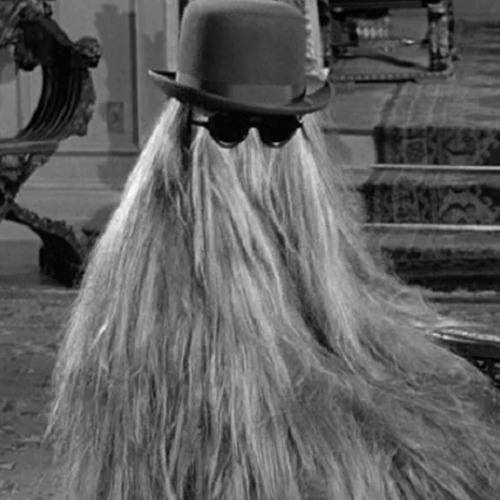
There is a fight raging between education and superstition within the Walls of the Kingdom of Israel. King Ahab, "father of the brotherhood" abandoned reflection upon the truth for debauchery embodied in his wife, the horror whore, Jezebel who encourages him to violence his people.
God tries everything- the Temple, the Government, foreign sovereigns, and Ahab considers the possibilities of being a Godly man. His worries include his reputation after he repents and earns his privileges for a change. That road, the steep road to Aram, the High Citadel where men are proud but not arrogant is not as appealing as the flat, effortless one he is on.
But what is happening to his people? And Spring is just around the corner...and what does it mean to be dead or alive after a Spiritual War? Find out now:
18 He said, “If they have come out for peace, take them alive; if they have come out for war, take them alive.”
19 The junior officers under the provincial commanders marched out of the city with the army behind them
20 and each one struck down his opponent. At that, the Arameans fled, with the Israelites in pursuit. But Ben-Hadad king of Aram escaped on horseback with some of his horsemen.
21 The king of Israel advanced and overpowered the horses and chariots and inflicted heavy losses on the Arameans.
22 Afterward, the prophet came to the king of Israel and said, “Strengthen your position and see what must be done, because next spring the king of Aram will attack you again.”
There is an infamous Mitzvah "do not eat a kid that has been boiled in its mother's milk." This means religion should not turn the child against its mother. Whether or not the mom should scold her child is not the question.
Parenting, according to the Torah requires religion, the only way a child will learn how to be ethical outside the house. This means religious discourses are to tame the animal inside the man, not kill the man waiting to emerge from the skin of the animal. So like the prohibition against eating a kid, which means the child must return home with his love for his parents intact, the Lord in Aram's voice says religion always returns a man home from war with his ego intact, just much improved.
Pride according to the Torah is a demonstration of the 12 Noble Skills which are skills learned from others who have become proficient in religion. Arrogance causes fear. Fear causes the death of the self and is the enemy of faith.
So in this combat between Aram and Israel, God says liberation from fear is the object of victory.
v. 18: has a value of 6792, וזטב , and zetab, = seth ab, "the professional leader."
The verb שית (shyt) means to give, set or place firm. Noun שית (shyt) refers to occupational garb, the dress upon which the profession stands. Noun שת (shat) describes a national foundation; whatever a nation is set on.
v. 19: The Junior Officers are the little men, the Bar Mitzvahs who are trained in obeying the Mitzvot; Provincial Commanders are the Laws. Verse 19 has not allowed common sense is enough, there must be a framework in the mind that governs one's conduct at all costs and provides an ethical spider web that catches the flies of superstitious or outlying perceptions that originate on the outside. Right and wrong are different things and we need to study the Torah in order to impress this upon ourselves.
v. 19-20: Ben Hadad, the Son of the Voice of God escapes on horseback. Horses are unholy in Jewish mythology. A man on a horse is up to no good.
The value is 10882, יחחב, "will hide". The Hebrew word for "to hide" is sathar, from se'ir, "hairy guys on horseback who do not shave their bush."
When the Voice of God is riding on one of these, superstition will abound.
v. 21, thankfully, the King of Israel overtakes the hairy dudes. Hair in Jewish mythology signifies experience. To little hair is a sign of immaturity or inflexibility, too much is the negative side of Aram, a sign of pride and arrogance.
A man that cuts his hair, his beard and shaves his saddle bag demonsrates he is well cultivated and able to settle in with other civilized persons. The King of Israel will always win over men that do not shave their bodies. In other words, cavemen are forbidden.
The Number is 6155, ואהה , "and oh", = "the mark."
The verb אוה ('wh III) means to sign or make a sign, mark or describe with a mark, etc. Its obvious derivation is the noun אות ('ot), meaning sign or mark.
=
The mark of a man is a nice shaved bush.
v. 22: Every spring, the Temple is obligated by God to remind the People of Israel of the importance of remaining Jewish, but a superstition free kind of Jewish, signified by 8980, חטחאֶפֶס, hathafes, "destruction due to diaspora."
The verb חתת (hatat) means to deplete of strength, courage, willpower or any essential support, which results in a collapse of sorts. Nouns חת (hat), חתת (hatat), חתה (hitta), חתחת (hathat) and חתית (hittit) describe the various nuances of debilitating or paralyzing terror or fear. The identical adjective חת (hat) means shattered or dismayed. Noun מחתה (mehitta) means destruction, ruin or terror.
The verb חתה (hata) means to seize or snatch up, usually of fire or coals. Noun מחתה (mahta), meaning fire pan or censer.
fes, from pes= diaspora
The verb פסס (pasas II) means to disappear or vanish. It's used only once, in Psalm 12:1, where the psalmist laments that the faithful disappear from among men. Since faithfulness requires social cohesion (to establish and retain standards to be faithful to), the disappearance of these faithful was likely due to their density in society, which results from them being spread out.
It is the appearance of hair on a boy's body that signifies he is either about to become an intelligent and gallant hunk, or a smelly disgusting brute. Religion is supposed to be the decisive factor in the way he sorts out. Even still our Jewish ancestors saw how readily the myths and legends were able to warp mankind. While we are often able to maintain our appearance without nobles, men who are shaped by proper instruction in religion to lead us we will always be kind of naked, hairy, and unkempt.
0 notes
Text
@ruinofostagar ll cont.
She allows contact without fuss, swaying just so under his touch with a slow grin. Looking back to him, she huffs something like a laugh, awash in salt. “It’s not the land that’s strange, Alistair. I know it better than myself. It’s the people. It’s how you live.”
#ruinofostagar#fighting in a foreign war [V: ORIGINS]#aria voice: i don't understand shem and at this point i am too afraid to ask.
2 notes
·
View notes
Text
Anonymous asked: I have always appreciated your thoughtful views on the defence of the British monarchy, and as a university historian it’s reassuring to see someone using history to make invalubale insights to a controversial institution. I wonder what are your own thoughts on the passing of Prince Philip and what his legacy might be? Was he a gaffe prone racist and a liability to the Queen?
I know you kindly got in touch and identified yourself when you felt I was ignoring your question. I’m glad we cleared that up via DM. The truth is as I said and I’m saying here is that I had to let some time pass before I felt I could reasonably answer this question. Simply because - as you know as someone who teaches history at university - distance is good to make a sober appraisal rather than knee jerk in the moment judgements.
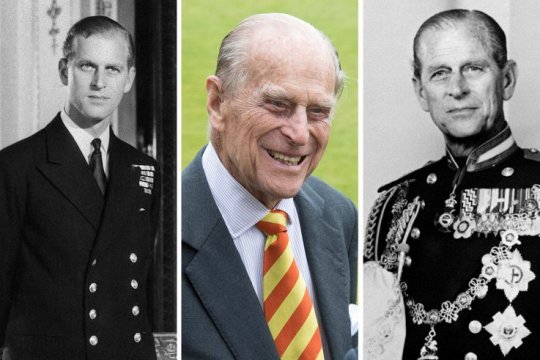
Contrary to what some might think I’m not really a fan girl when it comes to the royal family. I don’t religiously follow their every movement or utterance especially as I live in Paris and therefore I don’t really care about tabloid tittle tattle. I only get to hear of anything to do with the royal family when I speak to my parents or my great aunts and uncles for whom the subject is closer to their heart because of the services my family has rendered over past generations to the monarchy and the older (and dying) tight knit social circles they travel in.
Like Walter Bagehot, I’m more interested in the monarchy as an institution and its constitutional place within the historical, social, and political fabric of Britain and its continued delicate stabilising importance to that effect. It was Walter Bagehot, the great constitutional scholar and editor the Economist magazine, who said, “The mystic reverence, the religious allegiance, which are essential to a true monarchy, are imaginative sentiments that no legislature can manufacture in any people.” In his view, a politically-inactive monarchy served the best interests of the United Kingdom; by abstaining from direct rule, the monarch levitated above the political fray with dignity, and remained a respected personage to whom all subjects could look to as a guiding light.
Even as a staunch monarchist I freely confess that there has always been this odd nature of the relationship between hereditary monarchy and a society increasingly ambivalent about the institution. To paraphrase Bagehot again, there has been too much ‘daylight’ shone onto the ‘magic’ of the monarchy because we are obsessed with personalities as celebrities.
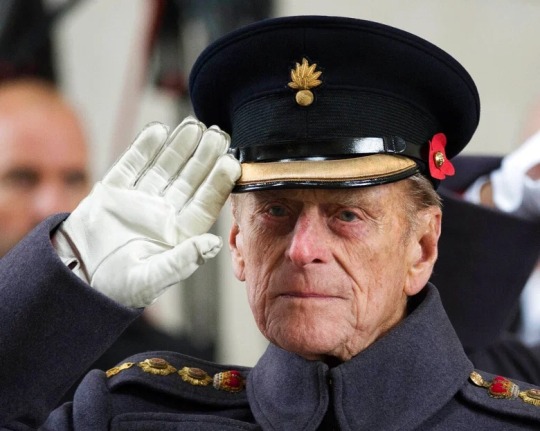
Having said that I did feel saddened by the passing of Prince Philip, the Duke of Edinburgh. After the Queen, he was my favourite royal. Anne, Princess Royal, would come next because she is very much like her father in temperament, humour, and character, so unlike her other brothers.
I have met the late Prince Philip when I was serving in the army in a few regimental meet-and-greet situations - which as you may know is pretty normal given that members of the royal family serve as honorary colonel-in-chiefs (patrons in effect) of all the British army regiments and corps.I also saw him at one or two social events such the annual charitable Royal Caledonian Ball (he’s an expert scottish reeler) and the Guards Polo Club where my older brothers played.
I’ll will freely confess that he was the one royal I could come close to identify with because his personal biography resonated with me a great deal.
Let’s be honest, the core Windsor family members, born to privilege, are conditioned and raised to be dull. Perhaps that’s a a tad harsh. I would prefer the term ‘anonymously self-effacing’, just another way of saying ‘for God’s sake don’t draw attention to yourself by saying or doing anything even mildly scandalous or political lest it invites public opprobrium and scrutiny’. The Queen magnificently succeeds in this but the others from Charles down just haven’t (with the exception of Princess Anne).
However, many people forget this obvious fact that it’s the incoming husbands and wives who marry into the Windsor family who are relied upon to bring colour and even liven things up a little. And long before Kate Middleton, Meghan Markle (very briefly), or Lady Diana Spencer, were the stars of ‘The Firm’- a phrase first coined by King George VI, Queen Elizabeth II's father who ruled from 1936 to 1952, who was thought to have wryly said, "British royals are 'not a family, we're a firm,” - it was Prince Philip who really livened things up and made the greater impact on the monarchy than any of them in the long term.
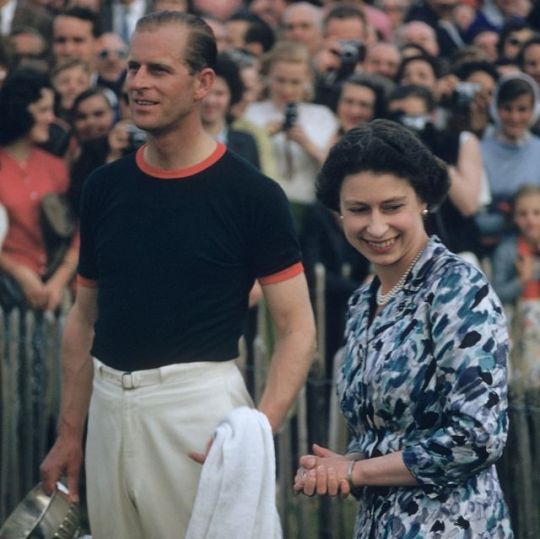
Prince Philip’s passing belied the truth of a far more complex individual: a destitute and penniless refugee Greek-Danish prince with a heart breaking backstory that could have been penned by any 19th Century novelist, and also eagle eyed reformer who tried to drag the royal family into the 20th century. At the core of the man - lost scion of a lost European royal dynasty, a courageous war veteran, and Queen’s consort - were values in which he attempted to transform and yet maintain much older inherited traditions and attitudes. Due to his great longevity, Philip’s life came to span a period of social change that is almost unprecedented, and almost no one in history viewed such a transformation from the front row.
Prince Philip would seem to represent in an acute form the best of the values of that era, which in many ways jar with today’s. He had fought with great courage in the war as a dashing young naval officer; he was regularly rude to foreigners, which was obviously a bonus to all Brits. He liked to ride and sail and shoot things. He was unsentimental almost to a comic degree, which felt reassuring at a time when a new-found emotional incontinence made many feel uncomfortable. Outrageous to some but endearing to others, he was the sort of man you’d want to go for a pint with, perhaps the ultimate compliment that an Englishman can pay to another Englishman. This has its own delicious irony as he wasn’t really an Englishman.
There are 4 takeways I would suggest in my appraisal of Prince Philip that stand out for me. So let me go through each one.
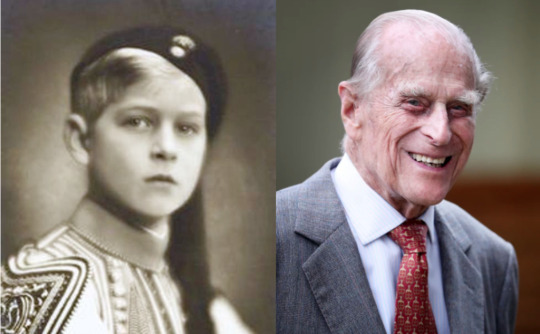
1. Prince Philip’s Internationalism
It may seem odd for me to say that Prince Philip wasn’t English but he wasn’t an Englishman in any real sense. He was a wretch of the world - stateless, homeless, and penniless. That the Prince of Nowhere became the British Monarchy’s figurehead was more than fitting for a great age of migration and transition in which the Royal Family survived and even flourished. That he was able to transform himself into the quintessential Englishman is testimony not just to his personal determination but also to the powerful cultural pull of Britishness.
He was born on a kitchen table in Corfu in June 1921. A year later in 1922, Philip, as the the great-great-grandson of Queen Victoria and nephew of Constantine I of Greece, was forced to flee with his family after the abdication of Constantine. He grew up outside Paris speaking French; ethnically he was mostly German although he considered himself Danish, his family originating from the Schleswig border region. He was in effect, despite his demeanour of Royal Navy officer briskness, a citizen of nowhere in an age of movement. From a very young age he was a stateless person, nationally homeless. Indeed, Philip was an outsider in a way that even Meghan Markle could never be; at his wedding in 1947, his three surviving sisters and two brothers-in-law were not permitted to attend because they were literally Britain’s enemies, having fought for the Germans. A third brother-in-law had even been in the SS, working directly for Himmler, but had been killed in the conflict.
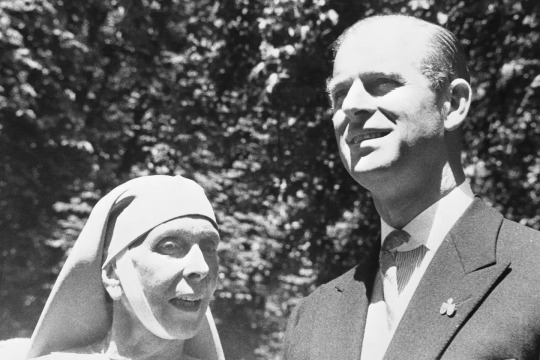
Even his religion was slightly exotic. He was Greek Orthodox until he converted to Anglicanism on marrying Elizabeth - what with his wife due to become supreme head of the Church and everything - but his ties with eastern Christianity remained. His great-aunts Princess Elisabeth of Hesse and by Rhine and Tsarina Alexandra are both martyrs of the Russian Orthodox Church, having been murdered by the Bolsheviks; Philip’s mother went on to become an Orthodox nun and a “Righteous Among the Nations” for saving a Jewish family during the Nazi occupation of Greece, spending much of her time in squalid poverty.
His parents were part of the largely German extended aristocracy who ruled almost all of Europe before it all came crashing down in 1918. When he died, aged 99, it marked a near-century in which all the great ideological struggles had been and gone; he had been born before the Soviet Union but outlived the Cold War, the War on Terror and - almost - Covid-19.
The world that Philip was born into was a far more violent and dangerous place than ours. In the year he was born, Irish rebels were still fighting Black and Tans; over the course of 12 months the Spanish and Japanese prime ministers were assassinated, there was a coup in Portugal and race riots in the United States. Germany was rocked by violence from the far-Left and far-Right, while in Italy a brutal new political movement, the Fascists, secured 30 seats in parliament, led by a trashy journalist called Benito Mussolini.
The worst violence, however, took place in Greece and Turkey. Following the defeat of the Ottoman Empire, what remained of Turkey was marked for permanent enfeeblement by the Allies. But much to everyone’s surprise the country’s force were roused by the brilliant officer Mustafa Kemal, who led the Turks to victory. Constantinople was lost to Christendom for good and thousands of years of Hellenic culture was put to the flames in Smyrna.
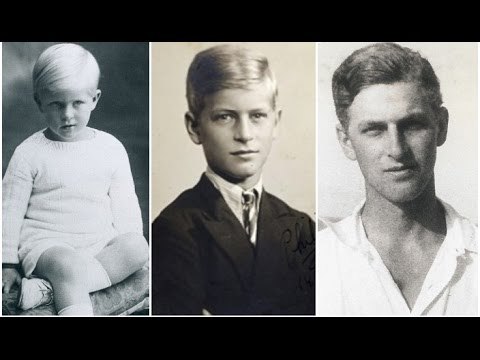
The Greek royal family, north German imports shipped in during the 19th century, bore much of the popular anger for this disaster. King Constantine fled to Italy, and his brother Andrew was arrested and only escaped execution through the intervention of his relative Britain’s George V. Andrew’s wife Alice, their four daughters and infant son Philip fled to France, completely impoverished but with the one possession that ensures that aristocrats are never truly poor: connections.
Philip had a traumatic childhood. He was forged by the turmoil of his first decade and then moulded by his schooling. His early years were spent wandering, as his place of birth ejected him, his family disintegrated and he moved from country to country, none of them ever his own. When he was just a year old, he and his family were scooped up by a British destroyer from his home on the Greek island of Corfu after his father had been condemned to death. They were deposited in Italy. One of Philip's first international journeys was spent crawling around on the floor of the train from an Italian port city, "the grubby child on the desolate train pulling out of the Brindisi night," as his older sister Sophia later described it.
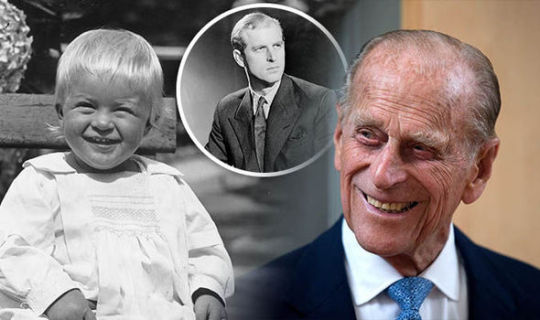
In Paris, he lived in a house borrowed from a relative; but it was not destined to become a home. In just one year, while he was at boarding school in Britain, the mental health of his mother, Princess Alice, deteriorated and she went into an asylum; his father, Prince Andrew, went off to Monte Carlo to live with his mistress. "I don't think anybody thinks I had a father," he once said. Andrew would die during the war. Philip went to Monte Carlo to pick up his father's possessions after the Germans had been driven from France; there was almost nothing left, just a couple of clothes brushes and some cuff-links.
Philip’s four sisters were all much older, and were soon all married to German aristocrats (the youngest would soon die in an aeroplane crash, along with her husband and children). His sisters became ever more embroiled in the German regime. In Scotland going to Gordonstoun boarding school, Philip went the opposite direction, becoming ever more British. Following the death of his sister Cecilie in a plane crash in 1937, the gulf widened. As the clouds of conflict gathered, the family simply disintegrated. With a flash of the flinty stoicism that many would later interpret, with no little justification, as self-reliance to the point of dispassion, the prince explained: “It’s simply what happened. The family broke up… I just had to get on with it. You do. One does.”
In the space of 10 years he had gone from a prince of Greece to a wandering, homeless, and virtually penniless boy with no-one to care for him. He got through it by making a joke of everything, and by being practical.
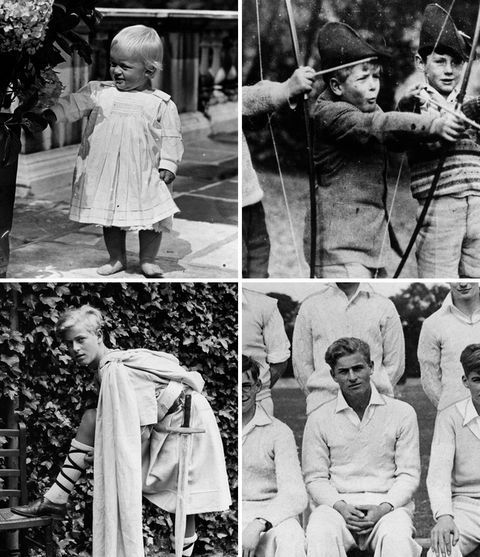
By the time he went to Gordonstoun, a private boarding school on the north coast of Scotland, Philip was tough, independent and able to fend for himself; he'd had to be. Gordonstoun would channel those traits into the school's distinct philosophy of community service, teamwork, responsibility and respect for the individual. And it sparked one of the great passions of Philip's life - his love of the sea. It was Gordonstoun that nurtured that love through the maturation of his character.
Philip adored the school as much as his son Charles would despise it. Not just because the stress it put on physical as well as mental excellence - he was a great sportsman. But because of its ethos, laid down by its founder Kurt Hahn, a Jewish exile from Nazi Germany.
Hahn first met Philip as a boy in Nazi Germany. Through a connection via one of his sister’s husbands, Philip, the poor, lonely boy was first sent off to a new school - in Nazi Germany. Which was as fun as can be imagined. Schloss Salem had been co-founded by stern educator called Kurt Hahn, a tough, discipline-obsessed conservative nationalist who saw civilisation in inexorable decline. But by this stage Hahn, persecuted for being Jewish in Nazi Germany, had fled to Britain, and Philip did not spend long at the school either, where pressure from the authorities was already making things difficult for the teachers. Philip laughed at the Nazis at first, because their salute was the same gesture the boys at his previous school had to make when they wanted to go to the toilet, but within a year he was back in England, a refugee once again.
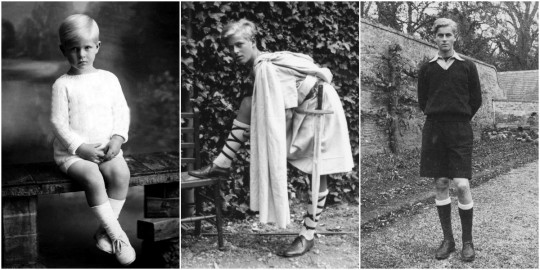
Philip happily attended Hahn’s new school, Gordonstoun, which the strict disciplinarian had set up in the Scottish Highlands. Inspired by Ancient Sparta, the boys (and then later girls) had to run around barefoot and endure cold showers, even in winter, the whole aim of which was to drive away the inevitable civilisational decay Hahn saw all around him. To 21st century ears it sounds like hell on earth, yet Philip enjoyed it, illustrating just what a totally alien world he came from.
That ethos became a significant, perhaps the significant, part of the way that Philip believed life should be lived. It shines through the speeches he gave later in his life. "The essence of freedom," he would say in Ghana in 1958, "is discipline and self-control." The comforts of the post-war era, he told the British Schools Exploring Society a year earlier, may be important "but it is much more important that the human spirit should not be stifled by easy living". And two years before that, he spoke to the boys of Ipswich School of the moral as well as material imperatives of life, with the "importance of the individual" as the "guiding principle of our society".
It was at Gordonstoun one of the great contradictions of Philip's fascinating life was born. The importance of the individual was what in Kurt Hahn's eyes differentiated Britain and liberal democracies from the kind of totalitarian dictatorship that he had fled. Philip put that centrality of the individual, and individual agency - the ability we have as humans to make our own moral and ethical decisions - at the heart of his philosophy.
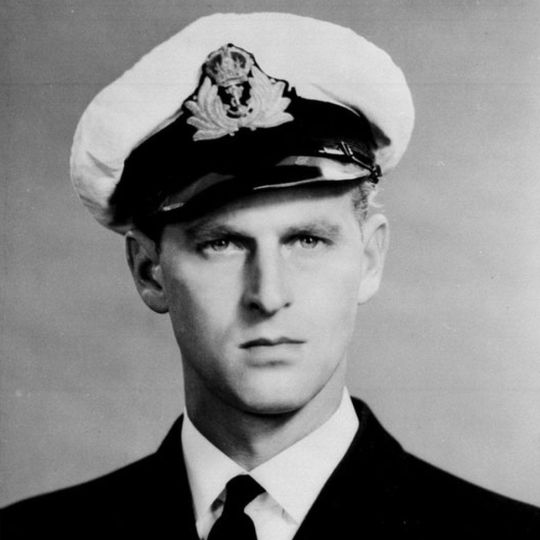
At Dartmouth Naval College in 1939, the two great passions of his life would collide. He had learned to sail at Gordonstoun; he would learn to lead at Dartmouth. And his driving desire to achieve, and to win, would shine through. Despite entering the college far later than most other cadets, he would graduate top of his class in 1940. In further training at Portsmouth, he gained the top grade in four out of five sections of the exam. He became one of the youngest first lieutenants in the Royal Navy.
The navy ran deep in his family. His maternal grandfather had been the First Sea Lord, the commander of the Royal Navy; his uncle, "Dickie" Mountbatten, had command of a destroyer while Philip was in training. In war, he showed not only bravery but guile. It was his natural milieu. "Prince Philip", wrote Gordonstoun headmaster Kurt Hahn admiringly, "will make his mark in any profession where he will have to prove himself in a trial of strength".
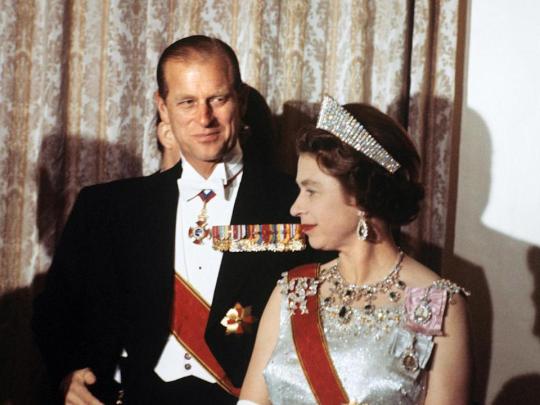
2. Prince Philip and the modernisation of the monarchy
In his own words, the process of defining what it meant to be a royal consort was one of “trial and error.” Speaking with BBC One’s Fiona Bruce in 2011, Philip explained, “There was no precedent. If I asked somebody, 'What do you expect me to do?' they all looked blank. They had no bloody idea, nobody had much idea.” So he forged for himself a role as a moderniser of the monarchy.
He could not have had much idea back in 1939. Back then in Dartmouth in 1939, as war became ever more certain, the navy was his destiny. He had fallen in love with the sea itself. "It is an extraordinary master or mistress," he would say later, "it has such extraordinary moods." But a rival to the sea would come.
When King George VI toured Dartmouth Naval College, accompanied by Philip's uncle, he brought with him his daughter, Princess Elizabeth. Philip was asked to look after her. He showed off to her, vaulting the nets of the tennis court in the grounds of the college. He was confident, outgoing, strikingly handsome, of royal blood if without a throne. She was beautiful, a little sheltered, a little serious, and very smitten by Philip.
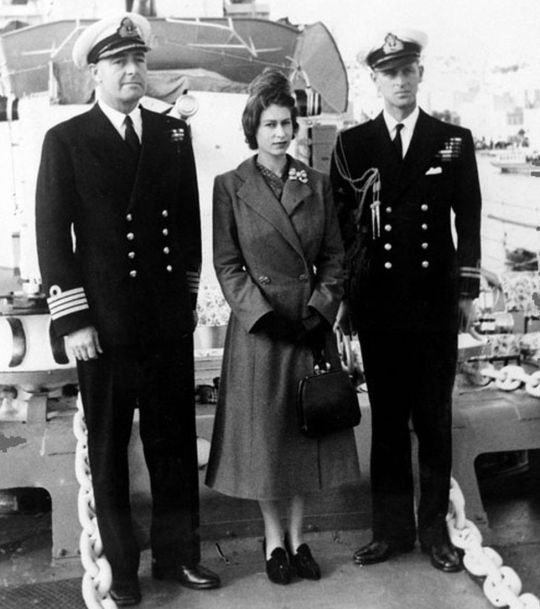
Did he know then that this was a collision of two great passions? That he could not have the sea and the beautiful young woman? For a time after their wedding in 1948, he did have both. As young newlyweds in Malta, he had what he so prized - command of a ship - and they had two idyllic years together. But the illness and then early death of King George VI brought it all to an end.
He knew what it meant, the moment he was told. Up in a lodge in Kenya, touring Africa, with Princess Elizabeth in place of the King, Philip was told first of the monarch's death in February 1952. He looked, said his equerry Mike Parker, "as if a ton of bricks had fallen on him". For some time he sat, slumped in a chair, a newspaper covering his head and chest. His princess had become the Queen. His world had changed irrevocably.
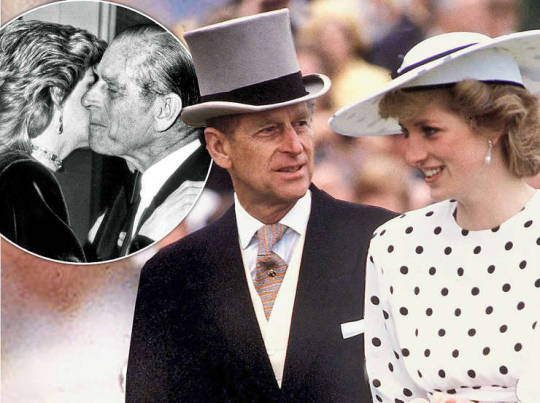
While the late Princess Diana was later to famously claim that there were “three people” in her marriage - herself, Prince Charles and Camilla - there were at least 55 million in Philip and Elizabeth’s. As Elizabeth dedicated her life to her people at Westminster Abbey at the Coronation on June 2, 1953, it sparked something of an existential crisis in Philip. Many people even after his death have never really understood this pivotal moment in Philip’s life. All his dreams of being a naval officer and a life at sea as well as being the primary provider and partner in his marriage were now sacrificed on the altar of duty and love.
With his career was now over, and he was now destined to become the spare part. Philip, very reasonably, asked that his future children and indeed his family be known by his name, Mountbatten. In effect he was asking to change the royal family’s name from the House of Windsor to the House of Mountbatten. But when Prime Minister Winston Churchill got wind of it as well as the more politically agile courtiers behind the Queen, a prolonged battle of wits ensued, and it was one Philip ultimately lost. It was only in 1957 that he accepted the title of “Prince.”
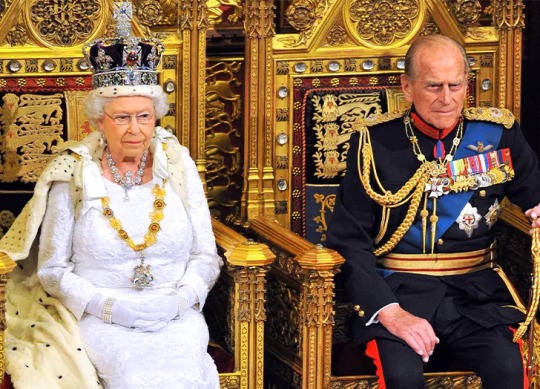
Even though he had almost lost everything dear to him and his role now undefined, he didn’t throw himself a pity party. He just got on with it. Philip tried to forge his own distinct role as second fiddle to the woman who had come to represent Great Britain. He designated himself the First Officer of the Good Ship Windsor. He set about dusting off some of the cobwebs off the throne and letting some daylight unto the workings of the monarchy by advocating reasonable amount of modernisation of the monarchy.
He had ideas about modernising the royal family that might be called “improving optics” today. But in his heart of hearts he didn’t want the monarchy to become a stuffy museum piece. He envisaged a less stuffy and more popular monarchy, relevant to the lives of ordinary people. Progress was always going to be incremental as he had sturdy opposition from the old guard who wanted to keep everything as it was, but nevertheless his stubborn energy resulted in significant changes.
When a commission chaired by Prince Philip proposed broadcasting the 1953 investiture ceremony that formally named Elizabeth II as queen on live television, Prime Minister Winston Churchill reacted with outright horror, declaring, “It would be unfitting that the whole ceremony should be presented as if it were a theatrical performance.” Though the queen had initially voiced similar concerns, she eventually came around to the idea, allowing the broadcast of all but one segment of the coronation. Ultimately, according to the BBC, more than 20 million people tuned in to the televised ceremony - a credit to the foresight of Philip.
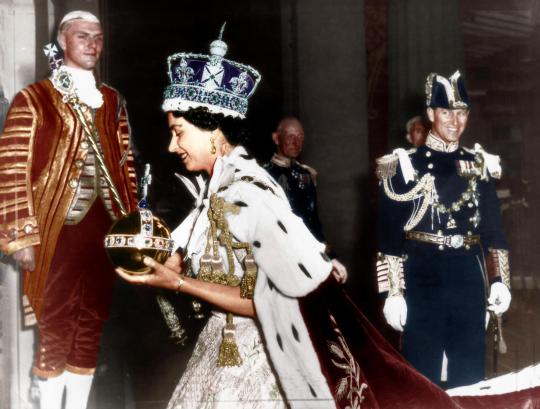
Elizabeth’s coronation marked a watershed moment for a monarchy that has, historically, been very hands off, old-fashioned and slightly invisible. Over the following years, the royals continued to embrace television as a way of connecting with the British people: In 1957, the queen delivered her annual Christmas address during a live broadcast. Again, this was Philip’s doing when he cajoled the Queen to televise her message live. He even helped her in how to use the teleprompter to get over her nerves and be herself on screen.
Four years later, in 1961, Philip became the first family member to sit for a television interview. It is hard for us to imagine now but back then it was huge. For many it was a significant step in modernising the monarchy.
Though not everything went to plan. Toward the end of the decade, the Windsors even invited cameras into their home. A 1969 BBC fly-on-the-wall documentary, instigated by Philip to show life behind the scenes, turned into an unmitigated disaster: “The Windsors” revealed the royals to be a fairly normal, if very rich, British upper-class family who liked barbecues, ice cream, watching television and bickering. The mystery of royalty took a hit below the waterline from their own torpedo, a self-inflicted wound from which they took a long time to recover. Shown once, the documentary was never aired again. But it had an irreversible effect, and not just by revealing the royals to be ordinary. By allowing the cameras in, Philip opened the lid to the prying eyes of the paparazzi who could legitimately argue that since the Royals themselves had sanctioned exposure, anything went. From then on, minor members of the House of Windsor were picked off by the press, like helpless tethered animals on a hunting safari.
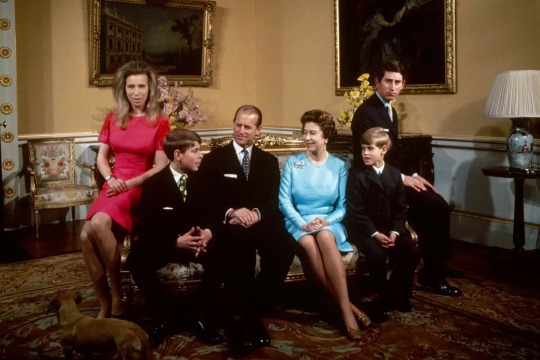
Prince Philip also took steps to reorganise and renovate the royal estates in Sandringham and Balmoral such as intercoms, modern dish washers, generally sought to make the royal household and the monarchy less stuffy, not to have so much formality everywhere.
Philip helped modernised the monarchy in other ways to acknowledge that the monarchy could be responsive to changes in society. It was Prince Philip - much to the chagrin of the haughty Princess Margaret and other stuffy old courtiers - who persuaded the Queen to host informal lunches and garden parties designed to engage a broader swath of the British public. Conversely, Prince Philip heartily encouraged the Queen (she was all for it apparently but was still finding her feet as a new monarch) to end the traditional practice of presenting debutantes from aristocratic backgrounds at court in 1952. For Philip and others it felt antiquated and out of touch with society. I know in speaking to my grandmother and others in her generation the decision was received with disbelief at how this foreign penniless upstart could come and stomp on the dreams of mothers left to clutch their pearls at the prospect there would be no shop window for their daughter to attract a suitable gentleman for marriage. One of my great aunts was over the moon happy that she never would have to go through what she saw as a very silly ceremony because she preferred her muddy wellies to high heels.
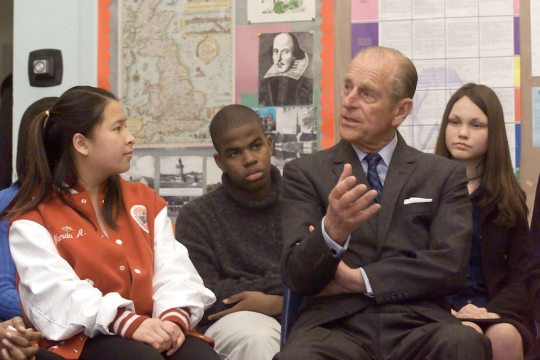
A former senior member of the royal household, who spent several years working as one of Prince Philip’s aides, and an old family friend, once told us around a family dinner table that the Duke of Edinburgh was undoubtedly given a sense of permanence by his marriage into the Royal Family that was missing from earlier years. But the royal aide would hastily add that Prince Philip, of course, would never see it that way.
Prince Philip’s attitude was to never brood on things or seek excuses. And he did indeed get on with the job in his own way - there should be no doubt that when it came to building and strengthening the Royal Family it was a partnership of equals with the Queen. Indeed contrary to Netflix’s hugely popular series ‘The Crown’ and its depiction of the royal marriage with Philip’s resentment at playing second fiddle, the prince recognised that his “first duty was to serve the Queen in the best way I could,” as he told ITV in 2011. Though this role was somewhat ill-suited to his dynamic, driven, and outspoken temperament, Philip performed it with utter devotion.
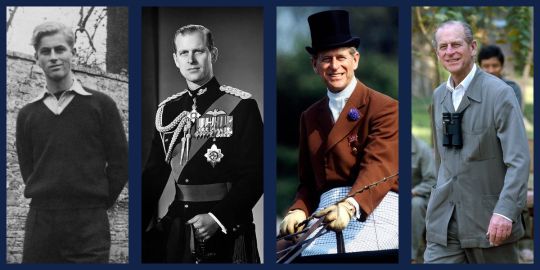
3. Prince Philip’s legacy
One could argue rightly that modernising the monarchy was his lasting legacy achievement. But he also tried to modernise a spent and exhausted Britain as it emerged from a ruinous war. When peace came, and with it eventual economic recovery, Philip would throw himself into the construction of a better Britain, urging the country to adopt scientific methods, embracing the ideas of industrial design, planning, education and training. A decade before Harold Wilson talked of the "white heat of the technological revolution", Philip was urging modernity on the nation in speeches and interviews. He was on top of his reading of the latest scientific breakthroughs and well read in break out innovations.
This interest in modernisation was only matched by his love for nature. As the country and the world became richer and consumed ever more, Philip warned of the impact on the environment, well before it was even vaguely fashionable. As president of the World Wildlife Fund (WWF) in the UK for more than 20 years from 1961, he was one of the first high-profile advocates of the cause of conservation and biological diversity at a time when it was considered the preserve of an eccentric few.
For a generation of school children in Britain and the Commonwealth though, his most lasting legacy and achievement will be the Duke of Edinburgh Awards (DofE). He set up the Duke of Edinburgh award, a scheme aimed at getting young people out into nature in search of adventure or be of service to their communities. It was a scheme that could match the legacy of Baden Powell’s scouts movement.
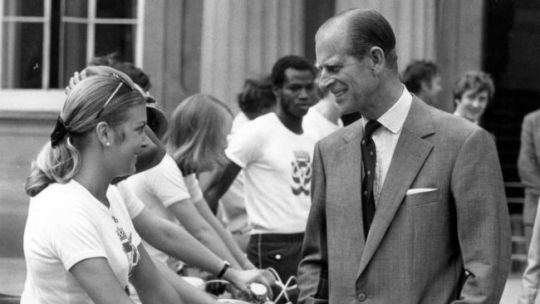
When Prince Philip first outlined his idea of a scheme to harness the values of his education at Gordonstoun by bringing character-building outdoor pursuits to the many rather than the fee-paying few, he received short shrift from the government of the day. The then minister of education, Sir David Eccles responded to the Duke’s proposal by saying: “I hear you’re trying to invent something like the Hitler Youth.” Undeterred he pushed on until it came to fruition.
I’m so glad that he did. I remember how proud I was for getting my DofE Awards while I was at boarding school. With the support of great mentors I managed to achieve my goals: collecting second-hand English books for a literacy programme for orphaned street children in Delhi, India with a close Indian school friend and her family; and completing a 350 mile hike following St. Olav’s Pilgrimmage Trail from Selånger, on the east coast of Sweden, and ending at Nidaros Cathedral in Trondheim, on the west coast of Norway.
It continues to be an enduring legacy. Since its launch in 1956, the Duke of Edinburgh awards have been bestowed upon some 2.5 million youngsters in Britain and some eight million worldwide. For a man who once referred to himself as a “Greek princeling of no consequence”, his pioneering tutelage of these two organisations (alongside some 778 other organisations of which he was either president or a patron) would be sufficient legacy for most.
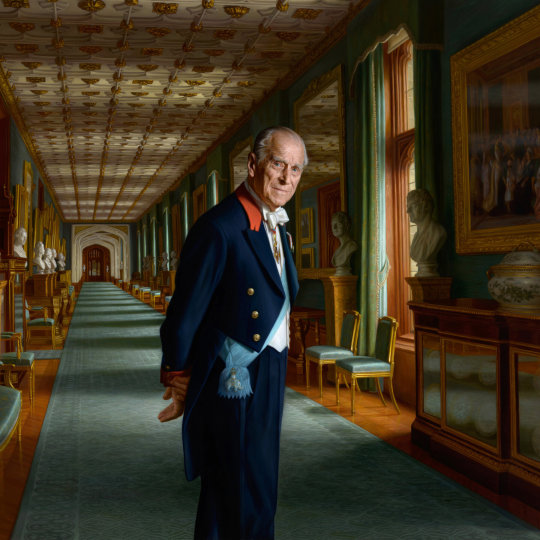
4. Prince Philip’s character
It may surprise some but what I liked most about Prince Philip was the very thing that helped him achieve so much and leave a lasting legacy: his character.
It is unhelpful to the caricature of Prince Philip as an unwavering but pugnacious consort whose chief talent was a dizzying facility in off-colour one-liners that he was widely read and probably the cleverest member of his family.
His private library at Windsor consists of 11,000 tomes, among them 200 volumes of poetry. He was a fan of Jung, TS Eliot, Shakespeare and the cookery writer Elizabeth David. As well as a lifelong fascination with science, technology and sport, he spoke fairly fluent French, painted and wrote a well received book on birds. It’s maddening to think how many underestimated his genuine intellect and how cultured he was behind the crusty exterior.
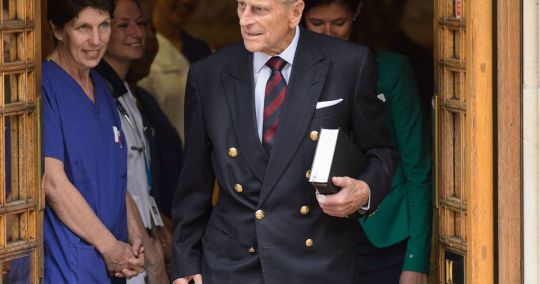
He didn’t have an entourage to fawn around him. He was the first to own a computer at Buckingham Palace. He answered his own phone and wrote and responded to his own correspondence. By force of character he fought the old guard courtiers at every turn to modernise the monarchy against their stubborn resistance.
Prince Philip was never given to self-analysis or reflection on the past. Various television interviewers tried without success to coerce him in to commenting on his legacy.But once when his guard was down he asked on the occasion of his 90th birthday what he was more proud of, he replied with characteristic bluntness: “I couldn’t care less. Who cares what I think about it, I mean it’s ridiculous.”
All of which neatly raises the profound aversion to fuss and the proclivity for tetchiness often expressed in withering put-downs that, for better or worse, will be the reflex memory for many of the Duke of Edinburgh. If character is a two edged sword so what of his gaffes?
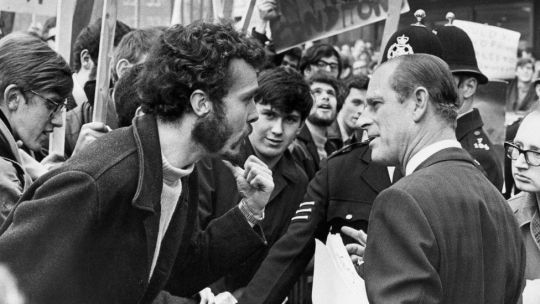
There is no doubt his cult status partly owed to his so-called legendary gaffes, of which there are enough to fill a book (indeed there is a book). But he was no racist. None of the Commonwealth people or foreign heads of state ever said this about him. Only leftist republicans with too much Twitter time on their hands screamed such a ridiculous accusation. They’re just overly sensitive snowflakes and being devoid of any humour they’re easily triggered.
There was the time that Philip accepted a gift from a local in Kenya, telling her she was a kind woman, and then adding: “You are a woman, aren’t you?” Or the occasion he remarked “You managed not to get eaten, then?” to a student trekking in Papua New Guinea. Then there was his World Wildlife Fund speech in 1986, when he said: “If it has got four legs and it is not a chair, if it has got two wings and it flies but is not an aeroplane, and if it swims and it is not a submarine, the Cantonese will eat it.” Well, he wasn’t wrong.
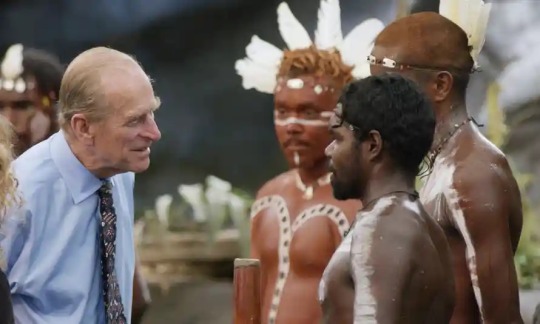
Philip quickly developed a reputation for what he once defined, to the General Dental Council, as “dentopedology – the science of opening your mouth and putting your foot in it”. Clearly he could laugh at himself as he often did as an ice breaker to put others at ease.
His remarking to the president of Nigeria, who was wearing national dress, “You look like you’re ready for bed”, or advising British students in China not to stay too long or they would end up with “slitty eyes”, is probably best written off as ill-judged humour. Telling a photographer to “just take the fucking picture” or declaring “this thing open, whatever it is”, were expressions of exasperation or weariness with which anyone might sympathise.
Above all, he was also capable of genuine if earthy wit, saying of his horse-loving daughter Princess Anne: “If it doesn’t fart or eat hay she isn’t interested.” Many people might have thought it but few dared say it. If Prince Philip’s famous gaffes provoked as much amusement as anger, it was precisely because they seem to give voice to the bewilderment and pent-up frustrations with which many people viewed the ever-changing modern world.
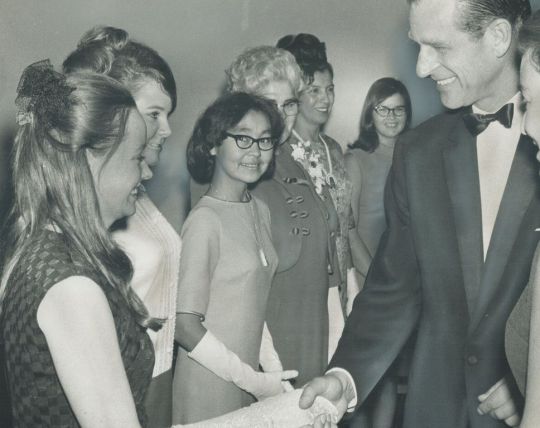
A former royal protection officer recounts how while on night duty guarding a visiting Queen and consort, he engaged in conversation with colleagues on a passing patrol. It was 2am and the officer had understood the royal couple to be staying elsewhere in the building until a window above his head was abruptly slammed open and an irate Prince Philip stuck his head out of the window to shout: “Would you fuck off!” Without another word, he then shut the window.
The Duke at least recognised from an early age that he was possessed of an abruptness that could all too easily cross the line from the refreshingly salty to crass effrontery.
One of his most perceptive biographers, Philip Eade, recounted how at the age of 21 the prince wrote a letter to a relation whose son had recently been killed in combat. He wrote: “I know you will never think much of me. I am rude and unmannerly and I say things out of turn which I realise afterwards must have hurt someone. Then I am filled with remorse and I try to put matters right.”
In the case of the royal protection officer, the Duke turned up in the room used by the police officers when off duty and said: “Terribly sorry about last night, wasn’t quite feeling myself.”
Aides have also ventured to explain away some of their employer’s more outlandish remarks - from asking Cayman islanders “You are descended from pirates aren’t you?” to enquiring of a female fashion writer if she was wearing mink knickers - as the price of his instinctive desire to prick the pomposity of his presence with a quip to put others at ease.
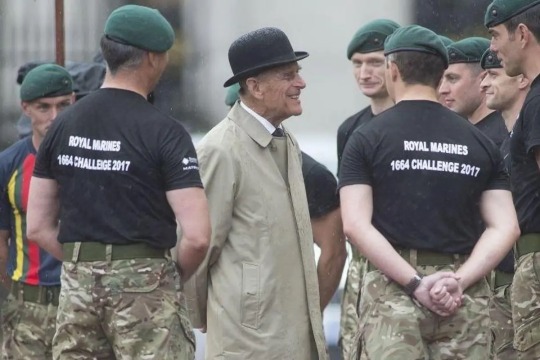
Indeed many people forget that his ‘gaffes’ were more typical of the clubbish humour of the British officer class – which of course would be less appreciated, sometimes even offensive, to other ears. It’s why he could relate so well to veterans who enjoyed his bonhomie company immensely.
But behind the irascibility, some have argued there also lay a darker nature, unpleasantly distilled in his flinty attitude to his eldest son. One anecdote tells of how, in the aftermath of the murder of the Duke’s uncle and surrogate father, Lord Mountbatten, Philip lectured his son, who was also extremely fond of his “honorary grandfather”, that he was not to succumb to self-pity. Charles left the room in tears and when his father was asked why he had spoken to his son with so little compassion, the Duke replied: “Because if there’s any crying to be done I want it to happen within this house, in front of his family, not in public. He must be toughened up, right now.”
But here I would say that Prince Philip’s intentions were almost always sincere and in no way cruel. He has always tried to protect his family - even from their own worst selves or from those outside the family ‘firm’ who may not have their best interest at heart.
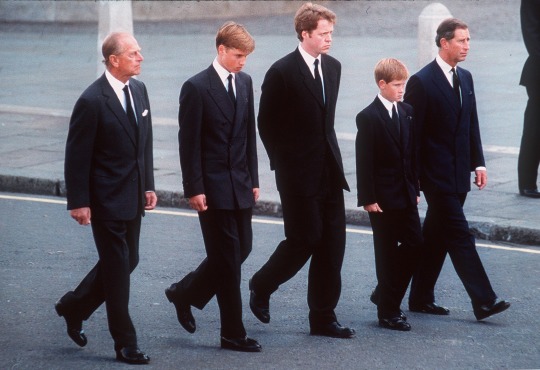
In 1937, a 16-year-old Prince Philip had walked behind his elder sister Cecile’s coffin after she was killed in a plane crash while heavily pregnant. The remains of newly-born infant found in the wreckage suggested the aircraft had perished as the pilot sought to make an emergency landing in fog as the mother entered childbirth. It was an excruciating taste of tragedy which would one day manifest itself in a very princely form of kindness that was deep down that defined Philip’s character.
When about 60 years later Prime Minister Tony Blair’s spin doctors in Downing Street tried to strong arm the Queen and the royal household over the the arrangements for the late Prince Diana’s funeral, it was Philip who stepped in front to protect his family. The Prime Minister and his media savvy spin doctors wanted the two young princes, William and Harry, to walk behind the coffin.
The infamous exchange was on the phone during a conference call between London and Balmoral, and the emotional Philip was reportedly backed by the Queen. The call was witnessed by Anji Hunter, who worked for Mr Blair. She said how surprised she was to hear Prince Philip’s emotion. ‘It’s about the boys,” he cried, “They’ve lost their mother”. Hunter thought to herself, “My God, there’s a bit of suffering going on up there”.’
Sky TV political commentator Adam Boulton (Anji Hunter’s husband) would write in his book Tony’s Ten Years: ‘The Queen relished the moment when Philip bellowed over the speakerphone from Balmoral, “Fuck off. We are talking about two boys who have just lost their mother”. Boulton goes on to say that Philip: ‘…was trying to remind everyone that human feelings were involved. No 10 were trying to help the Royals present things in the best way, but may have seemed insensitive.’
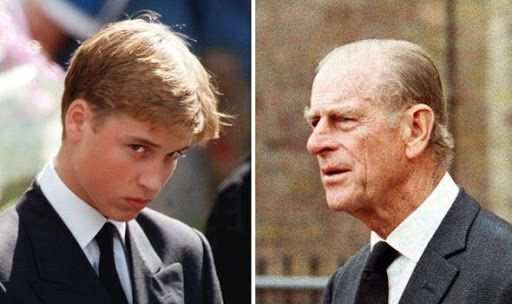
In the end the politicians almost didn’t get their way. Prince Philip stepped in to counsel his grandson, Prince William, after he had expressed a reluctance to follow his mother’s coffin after her death in Paris. Philip told the grieving child: “If you don’t walk, I think you’ll regret it later. If I walk, will you walk with me?”
It’s no wonder he was sought as a counsellor by other senior royals and especially close to his grandchildren, for whom he was a firm favourite. His relationship with Harry was said to have become strained, however, following the younger Prince’s decision to reject his royal inheritance for a life away from the public eye in America with his new American wife, Meghan Markle. For Prince Philip I am quite sure it went against all the elder Prince had lived his life by - self-sacrifice for the greater cause of royalty.
This is the key to Philip’s character and in understanding the man. The ingrained habits of a lifetime of duty and service in one form or another were never far away.
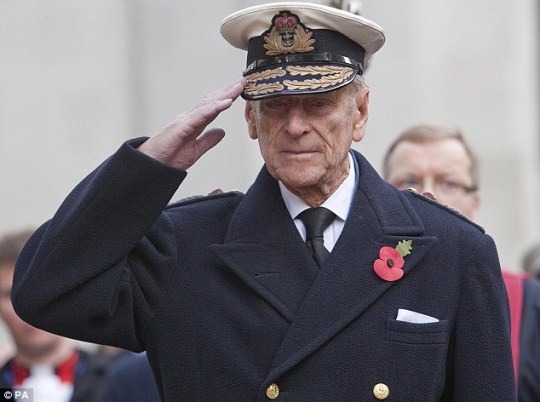
In conclusion then....
After more time passes I am sure historians will make a richer reassessment of Prince Philip’s life and legacy. Because Prince Philip was an extraordinary man who lived an extraordinary life; a life intimately connected with the sweeping changes of our turbulent 20th Century, a life of fascinating contrast and contradiction, of service and some degree of solitude. A complex, clever, eternally restless man that not even the suffocating protocols of royalty and tradition could bind him.
Although he fully accepted the limitations of public royal service, he did not see this as any reason for passive self-abnegation, but actively, if ironically, identified with his potentially undignified role. It is this bold and humorous embrace of fated restriction which many now find irksome: one is no longer supposed to mix public performance with private self-expression in quite this manner.
Yet such a mix is authentically Socratic: the proof that the doing of one’s duty can also be the way of self-fulfilment. The Duke’s sacrifice of career to romance and ceremonial office is all the more impressive for his not hiding some annoyance. The combination of his restless temperament and his deeply felt devotion to duty found fruitful expression; for instance, in the work of Saint George’s House Windsor - a centre and retreat that he created with Revd. Robin Woods - in exploring religious faith, philosophy, and contemporary issues.
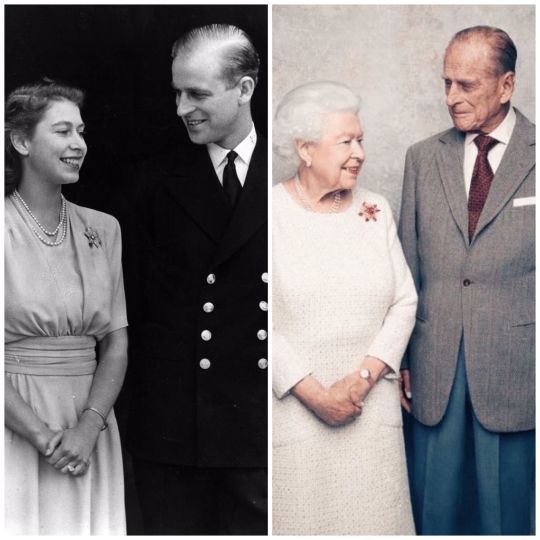
Above all he developed a way to be male that was both traditional and modern. He served one woman with chivalric devotion as his main task in life while fulfilling his public engagements in a bold and active spirit. He eventually embraced the opportunity to read and contemplate more. And yet, he remained loyal to the imperatives of his mentor Kurt Hahn in seeking to combine imagination with action and religious devotion with practical involvement.
Prince Philip took more pride in the roles he had accidentally inherited than in the personal gifts which he was never able fully to develop. He put companionship before self-realisation and acceptance of a sacred symbolic destiny before the mere influencing of events. In all these respects he implicitly rebuked our prevailing meritocracy which over-values officially accredited attainment, and our prevailing narcissism which valorises the assertion of discrete identities.
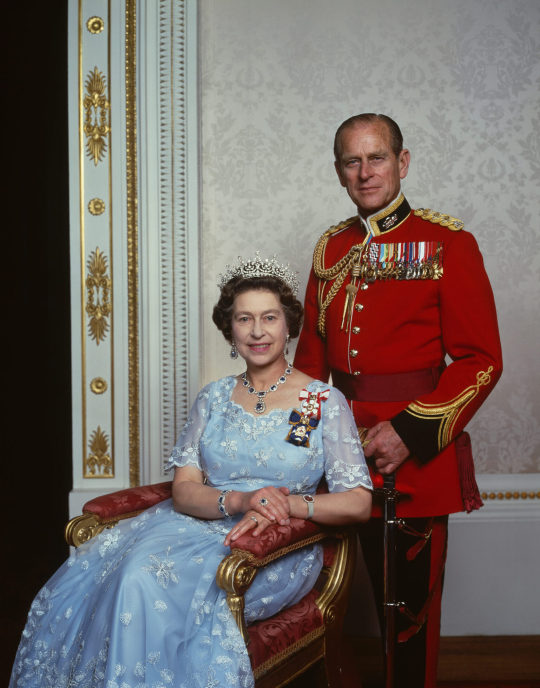
Prince Philip was Britain’s longest-serving consort. He was steadfast, duty driven, and a necessary adjunct to the continuity and stability of the Queen and the monarchy. Of all the institutions that have lost the faith of the British public in this period - the Church, Parliament, the media, the police - the Monarchy itself has surprisingly done better than most at surviving, curiously well-adapted to a period of societal change and moral anarchy. The House of Hanover and later Saxe-Coburg and Gotha (changed to Windsor), since their arrival in this country in 1714, have been noted above all for their ability to adapt. And just as they survived the Victorian age by transforming themselves into the bourgeoise, domestic ideal, so they have survived the new Elizabethan era (Harry-Meghan saga is just a passing blip like the Edward-Wallis Simpson saga of the 1930s).
There was once a time when the Royal’s German blood was a punchline for crude and xenophobic satirists. Now it is the royals who are deeply British while the country itself is increasingly cosmopolitan and globalised. British society has seen a greater demographic change than the preceding four or five thousand years combined, the second Elizabethan age has been characterised more than anything by a transformational movement of people. Prince Philip, the Greek-born, Danish-German persecuted and destitute wanderer who came to become one of the Greatest Britons of the past century, perhaps epitomised that era better than anyone else. And he got through it by making a joke of everything, and by being practical.
I hope I don’t exaggerate when I say that in our troubled times over identity, and our place and purpose in the world, we need to heed his selfless example more than ever.
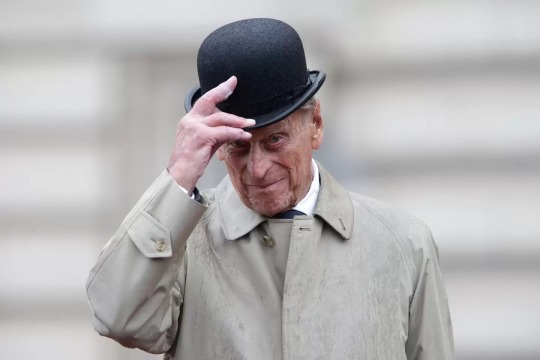
As Heraclitus wisely said, Ήθος ανθρώπω δαίμων (Character is destiny.)
RIP Prince Philip. You were my prince. God damn you, I miss you already.
Thanks for your question.
#question#ask#prince philip#duke of edinburgh#queen elizabeth II#the queen of spades#monarchy#britain#british#royalty#politics#history#culture#europe#crown#icon#great briton#society
285 notes
·
View notes
Note
First, Westeros is a fictionalized version of England and most Northwestern European medieval societies that uses mostly English history (War of the Roses, the Anarchy, William the Conqueror, the English Anglo Saxon kingdoms before the Norman Conquest). You didn't know this? It's literally what it's being modelled after...dude?!! Yes, this is Euro-centered!!! Also, "blood purity" and "closer to god than men" has always been not really believed in the way or level you seem to imply. Jaehaerys created the Doctrine for propaganda sake and get the Faith off the Targs' back. And, as you yourself stated, as one of the feudal houses of Westeros, the Targs reflect a common aristocratic trend of using godlikeness (the Gardners are son, so are the ironborn) of legtimizing their places in society, but with Jaehaerys we see less actual belief in that origin and more pragmatic use of ideological phenomena of the land he is ruling. Thereby, we can say that through the Targs, we are studying Westerosi feudalism and seeing how truly "backwards" the Westerosi customs are when we especially realize that the more the Targs assimiliate through the years so that their women lose power and agency, the weaker the house itself gets--even after they lose their dragons. In andal/Seven patriarchy, the Targs lost their way towards power, yes. So it is through the Targs' change into the fabric they bought that we measure and see in stark relief how backwards and oppressive the fedualist system Westeros and a lot of the ASoIaF world has. And the Targs aren't imperialists of Westeros, you are suing that word hella wrong. They are ordinary conquerors. If they weren't the lords would not be able to practice their customs as freely as they do.
Secondly, out of the thousands of years of non-Targ-unified rule where every singer Westerosi kingdoms were in constant warfare, there was been actual peace in "Westeros" for 210 or so years. Again, they ruled for 283 years. And after they are gone, what happens? Another civil war, the War of the Five Kings, from an era barely held together by people other than Robert, the king, himself who wanted to just fuck and fight his way to his own death.
hey have conquered the seven kingdoms using their weapons of mass destruction,they also never done anything for the poor or the smallfolks(considering that it was the smallfolks who k*lled the dragons)
In those 1000s of pre-Targ years of war mongering, the lords of Westeros have actually been much more of a menace to the smallfolk than the Targs have...have you ever actually heard a Stark, a Barathon, a Martell, a Arryn make declarations banning certain predatory practices at least in their own lands the way Alysanne and Rhaenys did (rule of thumb, right of first night, rule of six)? And it was a Andal-descent Westerosi, Tywin, who rolled back Aegon V's sincerely pro-peasant laws once he got to become Hand. It was Jaehaerys that built roads to connect different major areas, which indutibly helped travel for everyone, not just the nobles. It was Alysanne who got him to clean up the sewer sysytem a bit more for the smallfolk of KL. All either with selfless intentions OR with another self serving intent, but still by contrast, what did the other lords and ladies do for the smallfolk? Of any sort of intent?
So, no, the Targs are not exactly the same as the Starks. They're more similar to the Martells, really, in terms of how othered they are. And no, the Dornish, sociologically and politically, the Dornish are not "Other", but they are seen as "foreign". There si no system of oppression against them, either.
You also have a very narrow view of dragons, very similar to how the Seven see dragons as just evil. GRRM symobolically sees fire & very cleansing and purifying...as does many cultures. It's not all ""destruction". You ironically prove the point when you think this way, since in Cristian, esp Protestant--based soceities, fire tends to be invoked or thought of negatively. So do dragons. Very Eurocentric.
Thirdly, I love how you try to argue Dany is a white savior. She is not, you've been watching too much Game of Thrones. Not only is Essosi and larger ASoIaF slavery based on class instead of a the sort of "race" that exists in a modern era and slaves in Essos can be of any color, Dany is not disengnuous in her desire and passion to free all the slaves of Essos and become a true compassionate leader. And if you read the books, you will need to revisit them and stop listening to stupid videos on Youtbe that refuse to use book evidence or really just plain old logic to explain away their misogyny against Dany. Dany does use the history of her ancestors as her strength as well as to teach her what not to do.
Definition of a white savior:
a White person acts upon from a position of superiority to rescue a BIPOC—Black, Indigenous, or person of color—community or person
Therefore, even if she wanted to, Dany can never be a white savior.
---Interlude---
the blonde haired blue eyes who came from a society that exploited valyria
Maybe you got confused, because how could the valyrians exploit the valyrians (unless we're talking the class divide, but then we'd be talking about class, not race, and no there was no slavery based on race in Essos. ever.)? 🤨
---End---
Fourthly, and yes, within the context of Westeros, the Targaryens are an cognitive if not a social Other. An eternal foreigner of sorts.
This is the definition of the "Other"ing:
view or treat (a person or group of people) as intrinsically different from and alien to oneself
No one is saying that they are a systematically oppressed group, but they aren't treated as entirely human all the time either by fans nor those in Westeros AND fans tend to treat the Andal-FM ideological system as the default human one. Precisely bc of their strong heritage and present connection to magic. Westeros is dominantly Seven of the Faith, or the fictional version of Catholicsm. The Faith (of the Seven) is largely anti-magic and is the only religon in the known world that claims to not use or depend on magic. Magic is considered unnatural and evil. There is also no proof or indication that any of the Seven gods are real. Let that sink in. The religions of Rholor, the old gods, etc, all have traces of magic use AND people have wielded magic of a kind proven to actually work and shape the world around them.
Though the Targs have ruled for 283 years, they have had to abandon most of their past Valyrian customs--all except sibling marriage--bc they decided to assimilate as closely as they could to Andal culture and adopt the Seven religion to appease those they ruled. Still, because they have access to mysterious beings who they cannot control, their family is the most recent to come out of Essos, they are markedly different-looking to the point that they look almost inhumane to many Westerosi (no matter how pale, purple eyed, and white-gold-haired reminiscent of blonde-blue-eyes), AND the memory of Visenya and Rhaenys being competent and powerful women in their own right, the Seven of the Faith largely has always considered the Targs as "strange", then "mad".
Yes, even before Daenerys exited the Targs, mainly the women, were seen as a different alien group. The Targs of F&B and before that AWoIaF are not "better" than Dany--that wasn't even the damn question or the point in the first place!--they are there to contextualize her personal development and narrative importance. She makes them matter, of course, but she had to come from somewhere and draw her meaning of self somewhere. She does not, in the text, too, ignore or completely divest herself of her family legacy, she has favorites and is very proud to be a Targ. Her dragons, which are necessary for the Long Night, come from her blood connection to this house...and no there has been very little proof that a non-Valyiran-descent could ride or bond with dragons, so for the Targs, yes blood actually matters a great deal.
Look, the Targs shaped Westeros and even created a few of its current institutions for better or worse. It's not "glorification" if you're just describing what is written in the actual text. The series is not built for any house, nor is as haunted by any house but the Targs. The Starks are a second.
The fact that so many people think the Starks are honorable anticolonial fighters and the pinnacle of morality is absolutely insane, they literally built a massive wall to isolated a bunch of people they considered as “savages”, they hunted and slaughtered the Free Folk, the Children of the Forest, giants, exterminated whole houses and clans and took their daughters as “prizes” while conquering the North, etc. The Blackwoods were originally from the North and ruled most of the wolfswood, before being driven out by the Starks and forced to flee south. The Starks are the OG COLONIZERS in ASOIAF.
Even this did not give Winterfell dominion over all the North. Many other petty kings remained, ruling over realms great and small, and it would require thousands of years and many more wars before the last of them was conquered. Yet one by one, the Starks subdued them all, and during these struggles, many proud houses and ancient lines were extinguished forever. — The World of Ice and Fire – The North: The Kings of Winter.
I recently finished a Tiktok series that will probably just be as lost to the internet if we lose TikTok but I had to get out in response to a particular creator who bashes Rhaenyra while also proclaiming themselves as black stans. I think they are really more black stans because they hate Alicent personally and feels the thrill of the side-taking, but that's neither here nor there. 😏
To quote one of my mutuals here [rhaenin]:
It just rings so familiar to the way so many people view the other in real life. Because the Targaryens are overtly, and intentionally written as the other. It's the reason so many people identify with them, and it's the very same reason that other people vilify them. They're not just the in-universe other to the 'default' culture established in the text, but they're also given characteristics that we, the reader and audience, can recognize as other and even sometimes anathema to Western Christian culture. To paraphrase the annoying people that love to cite Ramsay when they feel like it: If you look at a morally complex family surrounded by other morally complex families in a morally complex world in a story that's famed for seeking to challenge your underlying assumptions, and think that their association with fire and brimstone is meant to signify their singular satanic evilness, rather than say... challenge that very Eurocentric assumption, you haven't been paying attention. This vilification mindset where the Targaryens are the singular evil of Westeros is so common to people who seem to want to consume ASoIaF without engaging with the criticisms of the Eurocentric worldview of history at the heart of it. And they end up using the convenient “others” to project all the wrongs of that world onto so they don't need to examine it any deeper. ........... It comes from the same place with how someone pointed out that the baffling bastardphobia that would have medieval peasants giving the side eye is so often people jumping at the chance to “cosplay” as bigots who base their arguments in misogyny and bio-essentialism. Because it's an acceptable channel to indulge in that mindset in a way that they'd often otherwise question, or at least hold back from expressing out of caution.
#the targaryens#the evil targaryens#targaryens as colonizers#asoiaf fandom#fandom critical#fandom discourse#fandom debate#westerosi history
68 notes
·
View notes
Text
Evening of the Empires Worldbuilding - Excerpts from "Wonders of Uria" by Levari Karrius
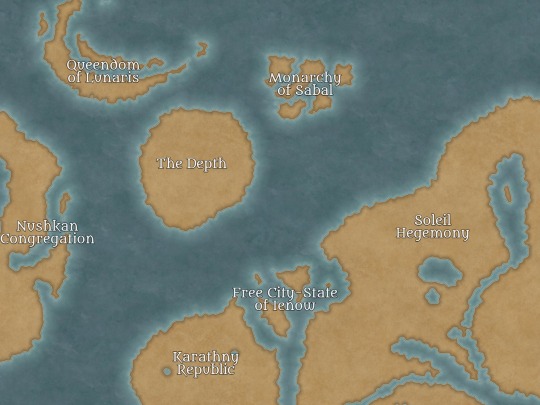
Some claim that Uria is broken; that, shortly after its creation, it was torn to pieces as an act of rage by the Lunar Mother. She swallowed most of the lands and left only scrumbles to the mortal beings. All of them have descended from The Depth, the heart of all creation, born out of Alania’s endless burning love. Scattered among what was left, the countries we know today started forming.
“But those are simply telltales,” you, my dear reader, might claim - and for a good reason. I do specialize in fantastic stories after all, but this time I shall make an exception and reach towards the truth.
And the truth is - despite all the work put into research by various scholars of all origins, we do not know much of our beginnings.
[…]
Previously mentioned Depths are mostly inhabited by dwarves, whose society flourishes despite not having a strong head of the state. They live in numerous cities, each carved in a mountain and one more impressive than another. Many among them work in mines, supplying their trade partners with either the materials or already made equipment - some dwarven merchants proudly claim that their steel is unbreakable.
Since the Depths are commonly assumed to lay above the heart of the world, many dwarves choose the path of knowledge, seeking to learn about the creation of Uria. Their expeditions go far down, to places that would never see the sunlight if it was not for these curious individuals. Most of their discoveries have shaken the very foundations of what we call science - minerals and plants never seen before or ancient underground settlements among those wonders. Gremmal Thernik, the curator of the House of the Forgotten, believes that only the surface has been scratched of what lies beneath.
[…]
Nushkan Congregation gathers numerous smaller countries, led by Nushka, a coastal kingdom ruled by the orcish dynasty of the Unbroken. However, many different races may be found among the Nushkan citizens - including humans, halflings, tieflings, and even a big population of elves. Each state governs itself, but they unite when it comes to foreign politics. The current high king, Xugash V, granted all of his vassals more power than his predecessors ever, all in return for their help in strengthening the army. This fragmentation of power may seem foolish at first glance, but it was a necessary move after a series of revolts in the region.
In the past decade, this western backwater of a country truly grew into an enemy to behold. The Unbroken Dynasty strongly focused on technological advancement, turning away from the ineffective agriculture. The harsh climate no longer stops the economy. Future Units, formed from scholars, mages and generals of all local races, became pioneers in engineering, mixing ages old magics with whole new inventions. Though, these wonders are granted to only the ones that can afford them.
[...]
Karathny Republic, built on remnants of the Ruby Empire, is a place of grand traditions. It is home to some of Uria’s greatest leaders and warriors, a place where many glorious battles occured - and, with all those legends, it should be no surprise that storytellers thrive in such an environment. The art of rhetorics is considered the most noble, which is one of the reasons for local politics being so interesting. The power here is fluid, and the people of the republic choose their representatives every five years.
The culture has always been the most important factor in this hot, deserted region with little to no natural resources. The trade routes are full with caravans transporting breathtaking paintings and sculptures or delicate, hand-woven fabrics. Along with the merchants travel various artistic troupes, lone bards and circuses. Although mostly inhabited by humans, elves and half elves native to this land, other races are seen as well - there are even a few purely orc and tiefling settlements.
[…]
The Free City-State of Ienow can be simply described as a curiosity unlike any other in the world - not only it is a melting pot of all races and cultures of Uria, it is also the smallest country that survived without being ingrained with one of the powers in the region. And the strangeness does not end at that! The politics of Ienow are dominated by the leaders of the most influential guilds in the city - Guild of Traders, Guild of Mages, Guild of Bankers, Guild of Fighters, and even… Guild of Assassins. The coastal islands are a common hideout of the pirates roaming the seas, since the system of justice is nearly non-existent. All of this makes for a rather dangerous - albeit always interesting - place to live.
Everything in Ienow revolves around two things: freedom and money. All is fair when either of those values are involved. Murders of political or economical opponents are a common practice, so are fights between gangs hired by guilds to keep the citizens in check. Those who come here seeking a new start are bound to be disappointed; it is nearly beyond possibility to climb up the social ladder. The poor immigrants are mostly employed in factories.
[...]
Queendom of Lunaris is the cradle of all things magical. This primarily elven, secluded country hosts a great entourage of mages, one more powerful than another. They are gathered in the Sorcerers’ Assembly, and the most influential members rule alongside queens from the Liaquen dynasty. Enchanters and alchemists are the backbone of the country’s economy, providing it with stable income - although the Guild of Mages offers arcane goods as well, it cannot compete with the lunarian quality.
The warm, forested islands are clearly prosperous under the reign of queen Cithren and Grand Sorceress Amarille, and one can see it even through the lense of everyday life. The roads crossing the islands are well maintained and protected, the villages and cities are all truly a sight for sore eyes, and even peasants are hospitable and content people. The only scar on Lunaris’ image is a faction led by a human preacher who calls himself Doom. Those people believe magic to be heresy, and claim that its users will bring doom upon Uria.
[…]
Soleil Hegemony thrives off conquests. What started off as a small northern county is now the grandest of the empires, and it is aiming to eventually be the only one. It was not always this ambitious, though - until recently, its sleazy aristocracy was content being stuck in the previous era, profiting off of peasants’ hard work on the fertile fields. These very devout people put their faith in the kings, believing them to be beloved sons sent by Watchful, the chief of their pantheon. No one dared to rebel against them, until recently.
After a foul murder of king Degarmo IX by a Ienowan assassin, another prominent figure rose to power - that is, General Chastain, a well respected leader of the soleilan army. Once he announced himself a dictator, everyone knew what his next step would be. He started a relentless war with what used to be the Gornorth Kingdom, and then quickly conquered the Lokei Republic. The empire grows, the nobles host decadent parties in order to celebrate victory, and countless soldiers die on the battlefields. The future seems rather unsteady.
[…]
The Monarchy of Sabal is quite a good definition for the word “underestimated”. This small country of seemingly no consequence has been around for too little time to build itself a decent reputation - it was only in the last era when a secessionist group of lunarian citizens, mostly tieflings and half elves, managed to tear them away from the Queendom. The newborn monarchy with still destabilized power attracted (and still attracts) numerous criminals, being a good alternative for the already crowded City-State of Ienow. Others have seen it as a great place for a fresh start and chose occupations of fishmongers and sailors.
The current monarch, Zarramine the Witful, truly lives up to their name. Rumor has it that the web of sabalan spies reaches far beyond the islands, all thanks to the monarch’s quite… liberal approach to outlaws. Many of them are forgiven in the local law’s eyes if they agree to work for the crown. Besides gathering information and manipulating the events from the shadows, Sabal has been building up its navy for quite some time. They would make a good operational base for soleilans if they wished to attack north and west - and many believe that soon General Chastain will turn his focus there...
45 notes
·
View notes
Video
youtube
19 · Paul Hardcastle
I have previously posted this, the video is now banned from sharing outside of youtube. EVERY video. short form, long form, fan made, etc. This is now the only one I can share on here without a big black box.
https://www.youtube.com/watch?v=hRJFvtvTGEk - link to original
In 1965 Vietnam seemed like just another foreign war, but it wasn't It was different in many ways, as so were those that did the fighting In World War II the average age of the combat soldier was twenty-six In Vietnam he was nineteen In inininininin Vietnam he was nineteen
The heaviest fighting of the past two weeks Continued today twenty-five miles northwest of Saigon
I really wasn't sure what was going on
N-n-n-n-nineteen, nineteen N-nineteen, nineteen
In Vietnam the combat soldier typically served a twelve-month tour of duty But was exposed to hostile fire almost every day
N-n-n-n-nineteen (N-n-n-n-nineteen) nineteen
In Saigon a US military spokesman said today More than seven hundred enemy troops were killed last week In that sensitive border area In all of South Vietnam The enemy lost a total of two thousand six hundred eighty-nine soldiers
All those who remember the war They won't forget what they've seen Destruction of men in their prime Whose average age was nineteen
D-d-d-d-d-destruction D-d-d-d-d-destruction
According to a Veteran's Administration study Half of the Vietnam combat veterans suffered From what psychiatrists call Post-traumatic stress disorder Many vets complain of alienation, rage, or guilt Some succumb to suicidal thoughts Eight to ten years after coming home Almost eight-hundred-thousand men Are still fighting the Vietnam War
None of them received a hero's welcome
17 notes
·
View notes
Link
0 notes
Text
“After the coronation ceremony in December 1154, Eleanor and Henry II both remained in their new kingdom for over a year until, in January 1156, the king left for France to contend with his brother Geoffrey’s rebellion in Anjou. Eleanor, often parted from her husband for long periods when he was fighting on England’s frontiers or on campaigns in his French lands, may have experienced feelings of isolation in England from time to time. Adding to the queen’s loneliness was her inability to have the company of more than a handful of her fellow Poitevins serving in her household.
Eleanor, living in the midst of foreigners withholding from her the admiration accorded their earlier queens and whose language she never learned to speak, may have faced her days in England with some foreboding. Henry’s frequent absences from his kingdom would become a cause of concern for his English subjects. In a letter addressed to the king by the archbishop of Canterbury in spring 1160, he was urged to return to England, and reminded of his offspring, “those children from the sight of whom scarce even the hardest-hearted father could any longer withhold his gaze.”
While in England, Henry had much work to do, taking him away from his queen’s side in his task of reversing the diminution of royal rights during the civil war under King Stephen. Not long after his coronation, he headed for the north to reassert royal power there, while Eleanor remained behind at Bermondsey in the last stage of her second pregnancy by the English king. When Eleanor gave birth to their second son on 28 February 1155, Henry II was in Northampton. This was their first child “born to the purple,” and he was named Henry to commemorate his great-grandfather King Henry I of England, linking the boy to the Anglo-Norman royal line.
At the end of March, the king returned from his northern expedition in time for the Easter festivities at Merton Abbey, and afterward he held a great council at London, where Eleanor had a prominent part in the festivities as the mother of two young princes. Two weeks later another council took place at Wallingford, where little William and his month-old brother were presented to the assembled magnates. The king, mindful of the uncertainty about the succession that had caused years of civil war, 1139–53, insisted that his barons swear their fealty to William and to his infant brother Henry.
By June, Henry had left his wife’s side again to go on campaign, this time in the west country, conducting sieges of castles at Bridgnorth, Wigmore, and Cleobury. Eleanor would be separated from her husband for much of 1156, for Henry II crossed the Channel to Normandy in January on his first visit to his Continental lands as English king. He would be absent from his kingdom for the entire year, not returning to England until April 1157, while Eleanor remained in England acting as regent. Some time during Henry’s absence, William died at the age of three, although the date of his death is not known.
Henry had left Eleanor pregnant for a third time, and in June 1156 she gave birth to a daughter, christened Matilda. The name linked the child to her Anglo-Norman ancestors, honoring her grandmother, the former German empress, whose own mother, William the Conqueror’s wife, had also borne the name Matilda. Eleanor’s first two children born in England were both christened by Archbishop Theobald of Canterbury at Holy Trinity, Aldgate, a London house of Augustinian canons founded by Henry’s grandmother, Henry I’s queen. Eleanor joined her husband at Angers in the summer of 1156, following William’s death. On that Continental sojourn, she took with her both Young Henry and the infant Matilda, no more than three months old.
The following autumn the royal couple would make a tour together of Eleanor’s duchy of Aquitaine, her first visit to her people in over two years. On this first visit since their coronation as king and queen of England, they revisited Limoges. Henry II intervened again in the Limousin to enforce his lordship, this time in the succession to the territory, enforcing his right as lord to guardianship over the deceased viscount’s minor son, even though previous count-dukes had not exercised such a privilege. He claimed custody of young Aymar V, and placed the viscounty in the hands of two Norman officials, despite the boy’s paternal uncles’ claim that tradition gave them the guardianship by their right as his closest kin.
Later Henry would take advantage of his lordship to arrange the young viscount’s marriage to a daughter of his uncle, the powerful Earl Reginald of Cornwall. Such “feudal” prerogatives of lordship were not customary in Eleanor’s lands, and Henry’s attempted introduction of them would not be appreciated by her nobility. From Limoges, Eleanor and Henry continued south, visiting Bordeaux at the invitation of her former guardian Archbishop Geoffrey du Loroux. The state visit to Eleanor’s lands culminated with a Christmas court at Bordeaux, where Henry proclaimed his peace to the nobility and people of Gascony.
This ceremony marked the end of Eleanor’s autonomy as ruler of her duchy. The five surviving documents issued by her as duchess during her 1156 visit reveal the limits of her authority over her ancestral lands, for three are merely confirmations of Henry’s acts. The two documents that Eleanor issued, evidently without Henry’s sanction, are routine orders to her Poitevin local agents to observe her father’s grants of privileges to religious houses. After this visit, Eleanor’s name disappears from Aquitanian charters, and none recording her as grantor, either alone or jointly with her husband, is found until her return over a decade later.
During those years, Henry was issuing charters for his wife’s subjects in Poitou with no mention of her consent, although many of them were likely confirmations of grants originally made by her. Following the Christmas court at Bordeaux, the queen returned to England with her children early in 1157, pregnant once more, to resume her duties as regent until Henry’s arrival in April. Neither Eleanor nor Henry would visit her duchy again until 1159 at the beginning of the failed Toulouse campaign. Prolonged visits to Eleanor’s lands by Henry were rare, and most were no more than a month long.
Two years after the 1156 visit, Henry would tangle with the viscount of Thouars, the most important noble in the northern and western parts of Poitou with territory stretching from his ancient fortress at Thouars, guarding the Poitevin frontier below the River Loire south of Saumur to the Atlantic coast near the Île d’Oléron. Henry took the castle of Thouars in 1158 after a three-day siege and then sent the viscount into exile, ruling his territory through Angevin or Norman appointees. Supposedly Henry had moved against the viscount of Thouars because of his support for Henry’s rebellious younger brother, Geoffrey count of Nantes; but according to some accounts, he acted out of a desire to please Eleanor, who considered the viscount a quarrelsome vassal.
She counseled Henry to forceful action, urging him to raze the castle and its walls just as earlier she had pressed her first husband for strong measures against the Poitevins. Whatever the cause, Henry’s brutality toward the viscount only alienated the nobles of Eleanor’s duchy. The Poitevin nobility viewed Henry Plantagenet as tampering with their traditional “liberties” in his attempt to transform vague ties that had bound them to Eleanor’s predecessors into defined duties owed to him as lord. As usual, the instigators of resistance were the lords along Poitou’s southern frontier in the lower Charente and upper Vienne valleys, most prominent among them the counts of Angoulême.
Despite the English king’s success in taking custody of the minor viscount of Limoges, the great men of Poitou rejected his “feudal” right to wardship and marriage, and Henry would never succeed in imposing on them the obligations owed by his Norman and English nobles. Nor would they admit that they held their lands of him as count-duke conditionally in return for payments and services; they only acknowledged a longstanding duty as landowners to perform ancient “public” services. Eleanor had urged Louis VII to strong measures against her subjects, but eventually she would come to see Henry’s authoritarian actions against the Poitevin aristocracy as contrary to her homeland’s traditions and her sympathies would shift toward her own people.
After Eleanor’s return from Poitou, she would remain in England throughout the summer and autumn of 1157, and on 8 September she was at Oxford, where another son Richard was born. The source of Richard’s name is uncertain; it had been borne by several Norman dukes, but Robert was also a common name in the ducal lineage of Normandy. Henry on rejoining his family in England in April 1157 would remain in his island kingdom for fifteen months, except for a Christmas visit to Normandy with Eleanor for the Christmas court at Cherbourg. In mid-August 1158, the king left again for a long absence of four and a half years, not returning until late January 1163.
Eleanor would recross the Channel to join her husband for the 1158 Christmas court at Cherbourg, leaving her infant son Geoffrey behind in England little more than two months after his birth on 23 September 1158. Geoffrey’s name, of course, honored Henry’s own father, Count Geoffrey of Anjou. The name Fulk that alternated with Geoffrey as a male name in the comital family of Anjou was also available for one of the sons, but never selected. Eleanor’s own ancestors afforded no additional choices, since all dukes of Aquitaine took the name William.”
- Ralph V. Turner, “Once More a Queen and Mother: England, 1154–1168.” in Eleanor of Aquitaine: Queen of France, Queen of England
#eleanor of aquitaine#eleanor of aquitaine: queen of france queen of england#history#high middle ages#medieval#ralph v. turner#henry ii of england
15 notes
·
View notes
Photo

31 Hollywood Icons Who Served in the U.S. Military
On this Memorial Day, millions of Americans across the country are honoring our military heroes, observing, and reflected on those who made the ultimate sacrifice. This list highlights some of the actors, directors, singers, producers, and entertainers who’ve served in the U.S. military.
From Hollywood’s earliest days, artists have served in the U.S. armed forces. Some had broader experiences than others in service to the country And many Hollywood greats served in World War II.
Jimmy Stewart
James Stewart not only joined the US Air Force in 1941, he ended his service in 1968 as a Brigadier General in the USAF Reserves. Stewart’s service was not for show, either. He flew many bombing missions over Germany and Nazi-occupied Europe.
Kirk Douglas
The famed movie tough guy joined the US Navy in 1941 and served as a communications officer in anti-submarine warfare. He received a medical discharge thanks to war injuries in 1944.
Clark Gable
Though he was already a veritable old man in soldier years, Gable joined the U.S. Army Air Corp at 43 and few five combat missions as an observer-gunner. Gable joined after his wife, Carol Lombard, died in a plane crash while flying home after a tour to promote war bonds.
Audie Murphy
Maj. Audie Murphy went into the Army as a private and won many battle field promotions. He is one of the most widely decorated actors in Hollywood history. He is the only actor/celebrity to be awarded the Congressional Medal Of Honor. In addition, he was awarded a Distinguished Service Cross, two Silver Stars, a Legion of Merit with Combat V, and two Bronze Stars with Combat V. He also received several foreign awards were especially impressive. He received the French Forrager, Legion of Honor, and Croix de Guerre with Palm and Silver Star, and the Belgian Croix de Guerre 1940 with Palm.
Other stars of the era who served include Jason Robards (Navy 1941), Paul Newman (Navy, 1943), and Mel Brooks (Army, 1944). Then there was singer and dancer Josephine Baker who was a secret collaborator with the French Resistance to the Nazi invaders and was even awarded the Croix de Guerre as a spy for her work to defeat the Nazis. Several others served in the forces of their native nations including David Niven (Royal Army), Sir Alec Guinness (Royal Navy), and Audrey Hepburn (Dutch Resistance), and Star TrekActor James Doohan (Royal Canadian Army). Doohan was part of the D-Day invasion forces, was wounded six times losing a finger in the process, and later joined the Canadian Air Force as a pilot.
Ronald Reagan
Our 40th president, Ronald Reagan, was already a star when he joined the war effort. He served in the Army Air Force during World War II, enlisting in the Army Enlisted Reserve on 29 April 1937 and ordered to active duty on April 19, 1942. Because of his eyesight, he was not assigned to an air crew and instead helped make over 400 training films for the Army Air Force.
Sidney Poitier
Sidney Poitier, the first black American to win an Academy Award, enlisted in the U.S. Army during World War II in November of 1943. He served as a physiotherapist for almost a year, even though he lied about his age, as he was only 16 when he joined.
B.B. King
B.B. King, one of the greatest blues guitarists, was inducted into the U.S. Army in 1944, but was quickly released back into civilian life following boot camp because the government deemed his original profession — a tractor-trailer driver — to be vital to the war economy.
Hugh Hefner
Later to be known as the swinger editor of Playboy Magazine, Hugh Hefner joined the U.S. Army in 1944 after graduating high school. Hef didn’t see any acton, though, and was discharged in 1946 after serving as an Amy newspaperman and infantry clerk.
Tony Bennett
Tony Bennett, the legendary “I Left My Heart in San Francisco” crooner, was drafted during World War II in 1944 and assigned to the 63rd Infantry Division, or “Blood and Fire” division, fighting in France and Germany. Being a “replacement” was not an easy job as the war was winding down in Europe. About half these soldiers died in the months after basic training in 1944 and the end of the war in Europe in Sept. of 1945.
After the big war, many others continued the tradition, of course.
Gene Hackman
The actor, who won an Academy Award for Best Actor in The French Connection, enlisted in the Marine Corps the year after World War Two ended in1946. He lied about his age to get accepted, as he was only 16 when he enlisted.
Willie Nelson
The Always On My Mind singer volunteered for the U.S. Army in 1950. However, he only served nine months and was given a medical discharge due to severe back problems.
Johnny Cash
Johnny “The Man In Black” Cash enlisted in the U.S. Air Force in 1950. After basic training at Lackland Air Force Base and technical training at Brooks Air Force Base, both in San Antonio, Texas, he was assigned to the 12th Radio Squadron Mobile of the U.S. Air Force Security Service at Landsberg, West Germany. He mustered out in 1954.
Clint Eastwood
Clint Eastwood was drafted in 1951 for service during the Korean War. Eastwood saw no action, though, and spent his service at Ft. Ord in California, where he was appointed as a lifeguard and projectionist of training films.
David Janssen
Perhaps best known as the man on the lam in the 60s TV series, The Fugitive, Janssen didn’t escape the U.S. Army having served from 1952 to 1954 at Fort Ord, California. He saw no action during the Korean War as he served in the entertainment division during his two-year stint.
Martin Milner
Like his army pals Clint Eastwood and David Janssen, Adam 12 star Martin Milner served a two-year stint in the Army and was based at Fort Ord, California. Also like his buddies Eastwood and Janssen, there he worked in the entertainment sector. He mustered out in 1954 and went right into TV and film work in Hollywood.
Robert Duvall
Robert Duvall enlisted in the U.S. Army after graduating from Principia College in 1953. Duvall has disputed early biographies that claimed he fought during the Korean War, though. He has joked that he “barely qualified” with his M-1 rifle in basic training. He served two years, and never got past the rank of private first class.
Leonard Nimoy
Later to become famous as Star Trek’s half human, half alien Mr Spock, Leonard Nimoy enlisted in the U.S. Army Reserve at Fort McPherson, Georgia. He served for 18 months between 1953 and 1955. Nimoy also worked in the Army’s Special Services narrating plays and performing in training films.
James Earl Jones
The voice of Star Wars villain Darth Vader, a man who has been referred to as “one of the greatest actors in American history,” served in the Army during the Korean War, rising to the rank of first lieutenant. Jones missed the war, though, as he started his service in 1953 just as the war was coming to a close.
Alan Alda
Best known for playing an Army surgeon in the TV series M.A.S.H., Alda did serve in the actual military when he volunteered after finishing his studies at Fordham University. He served as a gunnery officer during a six-month tour of duty in the Korean War.
Morgan Freeman
Morgan Freeman turned down a scholarship for acting and instead joined the Air Force in which he served from 1955 to 1959. He served as a radar technician and mustered out as an Airman 1st Class. Freeman has said that he enjoyed his service experience until, that is, he was being scouted to be trained as a jet pilot. He said the reality that war means killing dawned on him at that time and he began to look for the exit door to get back to life as an actor.
Elvis Presley
Elvis Presley’s drafting in 1957 was huge news and the media followed him throughout his years of service. Elvis honorably served his term and mustered out as a sergeant in 1960.
Chuck Norris
Famed martial artist Chuck Norris joined the U.S. Air Force in 1958 and served his full term, being discharged in 1962. He was ultimately assigned to Osan Air Base in South Korea where he began to develop his signature martial arts style, Chun Kuk Do.
Jimi Hendrix
Jimi Hendrix had a bit less gratifying service having been forced into the Army or face jail time for car theft in 1961. He served only one year before being discharged for an ankle injury. Some researchers suggest that the injury was just the Army’s excuse to be rid of the troublesome rocker.
John Fogerty
Singer-songwriter John Fogerty joined up in 1966 when his draft number neared. He signed up for the United States Army Reserve as a supply clerk. However, he was switched to active duty for six months, anyway, but saw no service under fire. He was discharged honorably in 1968.
Tom Selleck
Tom Selleck was already an actor when he was drafted during the Vietnam War in 1967. He served six years in the the 160th infantry regiment of the California National Guard.
Oliver Stone
The famed director of Platoon served during the Vietnam War from 1967 to 1968 and was wounded twice. He earned the The Bronze Star with V’device and a Purple Heart with one Oak Leaf Cluster.
Pat Sajak
Pat Sajak volunteered for the U.S. Army in 1968. While he saw no battlefield action in Vietnam, Sajak did serve as an Army Radio disc jockey and ended up in country, anyway, when he was assigned to host a radio program on Armed Force Radio broadcasting in Saigon.
R. Lee Ernmey
Everyone knows R. Lee Ermey as the intense drill sergeant in Full Metal Jacket, but some may not know that he served in the Marines for a decade, was a real Drill Instructor, and saw service in Vietnam in 1968. He started out as a Repair Shop Mechanic and went on to earn the Good Conduct Medal (x2); the National Defense Service Medal; the Vietnam Service Medal with Bronze Star; the Vietnam Campaign Medal with Device; the Vietnam Gallantry Cross with Palm Unit; Meritorious Unit; the Armed Forces Expeditionary Medal; and a Meritorious Unit Citation.
Ice-T
Musician, songwriter, and rapper Tracy Lauren Marrow — better known in the music scene as Ice-T and also for his long-running starring role on TV’s Law & Order SVU — joined the U.S. Army in 1979 after graduating high school. He served the 25th Infantry Division for four years.
Drew Carey
TV funny man and game show host Drew Carey served in the U.S. Marine Corps Reserves starting in 1980. He was honorably discharged in 1986 and he says that he adopted the Marines crew cut and horn-rimmed glasses as his trademark look due to his service.
Adam Driver
Adam Driver, who found fame as Kylo Ren in the Star Wars series, joined the U.S. Marines shortly after the attacks on Sept. 11, 2001. He was briefly assigned to the Weapons Company, 1st Battalion, 1st Marines, before being medically discharged due to an injury.
Follow Warner Todd Huston on Facebook at: facebook.com/Warner.Todd.Huston.
EntertainmentNational SecurityMemorial Day
8 notes
·
View notes
Note
Hey, sis, the country ask: 1, 2, 5, 6, 9, 11, 12, 14, 16, 18, 22, 27 and 30. Thank you, if you do them! 😊❤️
*it got pretty long so the answers are under the cut*
1. favourite place in your country?
As a lover of history and mountains, in a country full of both, it’s a bit difficult to choose :D I am going to limit it to places I’ve been to to make it easier for myself. Of those, my favorite would be probably Orava Castle. It lies in the northern part of my country and is one of our largest castles. I’ve been there when I was perhaps ten years old or so, so my memory of the place is a bit blurry, but I remember parts of it and I loved it. Nosferatu was actually shot there. I’ve never seen the movie (I am not one for horror), but I heard it’s pretty popular? :D Anyway Also, we have some caves that are worth visiting - of those I’ve been to, my favorite was Belianska cave. Open-air museums (skanzen in my language) are worth visiting as well.
2. do you prefer spending your holidays in your country or travel abroad?
Depends on what place in my country and which country abroad. Going abroad is always an amazing experience, seeing all the different cultures and places. I long to visit some of the countries in Northern Europe, as well the Mediterranean area for its history. Switzerland is one of my favorite places to visit, I’ve been there twice. But my country can be certainly fun as well - we have beautiful mountains in most of Slovakia, and we are the country with most castles per capital (alongside Wales, each site claims something different :D). I probably prefer going abroad for holiday, but for a simple trip, Slovakia is the best.
5. favourite song in your native language?
I tend to listen to English music more, and most of the new songs in my country are pop (which I don’t listen to), so it would probably be something older from my childhood. So the bands my dad would play in the car - Elán, Lojzo, IMT Smile, Horkýže Slíže, Tublatanka and so on :D No specific song, really.
6. most hated song in your native language?
I have no idea what it’s called, but my classmates listen to it all the time and it always gets me into a murderous mood.
9. which of your neighbouring countries would you like to visit most/know best?
11. favourite native writer/poet?
Well, I’ve been only in two of them - the Czech Republic and Poland, tho I did pass through Hungary a few times. I don’t have any real preference. We have much of common history with Czechs and it's been the country I’ve been the most times to, but really, as a lover of travel and learning about new places, I don’t have a preference.
Edit: oh god I forgot Austria :D been there several times, loved it
From most of our writers/poets, I’ve read only some of their shorter works. But my favorite was Bloody Sonnets, written by Pavol Országh Hviezdoslav in the early 20th century, so I am gonna say him.
12. what do you think about English translations of your favourite native prose/poem?
I’ve never read any, but I’ve just searched above mentioned Bloody Sonnets (it’s an anti-war poem) and found parts of it in English, so for comparison:
ENGLISH:
What caused this wreck, this brutal and ignoble
collapse of morals? What provoked the breach?
What led mankind, in spirit grand and noble,
to plunge in the mud? What vampire? Oh, what leech,
sucking the sap of life out of the breast,
constantly thirsting bloody parasite?
Ah, selfishness! — and to destroy this pest
today we have no troops, no heroes to fight.
Yes, it will twist and tear and rend, and fall,
a tyrant, on the weak and innocent;
although the world is wide enough for all,
it would have sole control of earth’s extent
and even possess the universe, no less,
pitching the other into emptiness —
SLOVAK (same paragraphs):
Kto zapríčinil tento úpadok,
zosurovenie, zdivočenie mravov?
Čo ľudstvo zviedlo s ducha veličavou
vbŕsť do bahna? Ký upír to a mlok,
z pŕs sajúci mu i dnes žitia mok,
krvožíznivec s večnou záhou žhavou?
Ech, sebectvo! to! — a niet nad ohavou
tou zvíťaziť, vojsk, rekov po dnešok.
Hej, ono krivdí, hnetie, zdiera, týra
svevoľne, kde len stihne, slabšieho;
hoc zem je pre všetkých dosť šírošíra,
chce, aby strela sa len pre neho;
ba končiny si svojí všehomíra,
kams’ v prázdeň vytískajúc iného —
Personally, I prefer the original, tho the translation isn’t bad - it’s just that Slovak and English are different in every possible way, so the translation is difficult and the words sounds more poetic in the original :D
14. do you enjoy your country’s cinema and/or TV?
I don’t watch TV at all and rarely go to the cinema so can’t say. I am more for literature.
16. which stereotype about your country you hate the most and which one you somewhat agree with?
My country isn’t very well-known so I didn’t encounter that many stereotypes - thus I am not passionate about them, so I will be speaking in general, rather than hate or agreeing. The only occasion when a foreigner said something about our country was in Switzerland, when a random guy immediately went ‘Peter Sagan!’ (our cyclist), and once in Italy a guy went ‘Hamšík!’ (our football player) and said to us three words in Czech. So I had to google a bit what people think of us, and what I got was ‘drinking too much, problems with internet, constantly grouping as with Czechs and Russians and eastern Europe in general, us having beautiful women, us not having a sense of humor, thinking Czechoslovakia is still a thing'.
So.
About alcohol - I don’t drink, but many Slovaks do. However, not to the extent that they would be constantly drunk - usually only in restaurants, on visits, celebrations, holidays, and when they aren’t driving. At home, it’s not that often. It doesn’t seem too much to me, but I don’t know how much people from other countries drink so can’t judge. By the way, this extends to the part of the country where I live so can’t say about other parts of Slovakia (goes for all stereotypes).
Problems with internet - false. The only places where I have problems are public spaces and my dorm.
With Czechs, we have much of common history, and to this day, we consider ourselves brothers and sisters and easily understand each other’s languages. But in the end, we are separate people, so Czech and Slovak aren’t the same. Czechoslovakia hasn’t been a thing since 1993.
Older people here speak Russian since it was mandatory for them in school (for us, it’s English). I was never taught the language - in school, we got to choose between German and Russian and I chose German since it would be more useful for me. I don’t understand the Russian alphabet (don’t not how it’s called in English, for us it’s azbuka), and I understand very little of the language itself since I’ve never really encountered it. However, after a little exposure, it probably would be more understandable to me. In Croatia, we didn’t have much trouble communicating while speaking, despite us talking in different languages. But really, it depends on the person and the language. I’ve heard that Slovak is the language easiest for all Slavs to understand, but if it’s true, I don’t know.
We aren’t in Eastern Europe. We are in Central, and we are more of a mix between West and East, so grouping as with one or the other is incorrect.
Can’t judge on beautiful women and I have no idea how did this become a stereotype - one of the rare ones I’ve actually heard about :D
About the sense of humor, once again depends on the person. Period. But we are private people, so that may be where the stereotype is coming from.
18. do you speak with a dialect of your native language?
Not really, the only difference between my way of speaking and the ‘correct’ one is that I pronounce words with ľ harsher. For example, ľudia is pronounced with ľ (basically soft l, closest to pronunciation would be ‘li’ but it’s still very different), but here we pronounce it ludia.
22. what makes you proud about your country? what makes you ashamed?
Proud? Our nature, culture, historical monuments. Ashamed? Politicians.
27. favourite national celebrity?
No one, I am not very interested in celebrities in general.
30. do you have people of different nationalities in your family?
My dad has a few distant cousins in the Czech Republic, but other than that, I am not aware of anyone.
#thanks for the ask sis! ❤️#had to edit it like billion times because the poems kept making a mess :D#and oh god they are wrong again#screw it :D#slovakia
9 notes
·
View notes
Note
How do you see Drago's possible future after the events of the series? Can it be happy? Change anything for him? I endlessly resent the show's ending, Drago doesn't deserve it. Yes, he seemed to be trying to cripple our world and all that, but this is more like an offended teenager who, without asking, took an expensive car from his father for a drive, just to spite him. And what would Drago do if he took over the world in the finale? I think he will get bored quickly
Welp, as far as we know, he is forever trapped in limbo/oblivion with his abusive father and racist relatives, with all of them being egotistical assholes. So, uh, I say no; his future wouldn’t be good.
I talk about this in the future post about the eight Demon Sorcerers, but I’ll state it here as well. Shendu explicitly states that the spell Drago used to absorb all that chi is irreversible, meaning that Drago is PERMANENTLY a Cthulhu ripoff monster. “But in the monster form, he transferred some chi to the Crew? That means he can willingly depart with it?“ That is true, which leads me to believe two things: 1) The chi didn’t settle in all the way yet and he could transfer it still, or 2), because Shendu was talking to Uncle about creating a spell to undo what has been done, Shendu might have just been referring to that a human could not possess/create a spell that would reverse it. Either way, we’re led to believe he is stuck like that forever.
However, in theory, maybe his relatives could reverse it, since it is their chi and they are naturally magical creatures, having the ability to do things and stuff and more than a human. So, if all eight of them work together, or seven, if Drago got to keep his fire, he could go back to normal.
The problem with this though is if the sorcerers are willing to do it or not. Of course Shendu would want it reversed, but what about the other seven? Well, here’s my explanation, which of course gets dark and sad:
If you’ve read/remember my talk on when Drago could have been, er, “born,‘ I guess, it would have been when Shendu was ruling the world on his own with all the other demons in the Netherworld. It’s safe to assume Drago never actually met his aunts and uncles in person, but it could have been entirely possible he read up on them or asked his Dad. I also think the other sorcerers never met/been told about him either, since they’d probably be disgusted by the whole “fornicating with a human“ aspect and bring it up a lot. So, Drago never met the rest of the family, and the rest of the family never even knew about Drago’s existence. Imagine their surprise when they see Shendu come floating in, attempting to strangle a foreign looking demon who he seems to have personal relations with.
“Why look who has decided to drop in! Shendu, you miserable little-- wait, who’s that?“
“Uhhhh, I can explain“ or “Uhhhh, no one important“ (with the latter getting a big ol “>:o” form Drago)
I’m not sure how it would come to be explained, but once the Demon Sorcerers find out that Drago is Shendu’s son, who looks strikingly human, they. Would be. REPULSED. Their entire existence is built upon demons having the right to enslave humanity, seeing them as nothing more than worker ants and piles of dirt; absolutely beneath them. Then all of a sudden they get to see some human/demon abomination housing (maybe even considered stealing in their eyes) their chi. What kind of disgusting embarrassment is this?! No! They will not be having this! He does not deserve the label of being a demon; he is not one of them; not part of the family! Then they would take all the chi he has, reversing him back to his original form of being small and powerless (in comparison to them). I would not be surprised if they never referred Drago to be their “nephew.“ Hell, maybe even never calling him ‘he‘ or say his name. Just ‘it‘ and ‘thing.‘ His fate after this would be up in the air, either being tortured along with his father, or straight up killed.
And then from Drago’s perspective, he would be absolutely heartbroken to witness their reactions. He spent all this time trying to bring demons back to Earth, and THIS is his payment. Yeah, he wanted to rule the world himself, but he actively states that he wanted to free his demon brethren. If he were to explain this to his relatives, they might feel a little appreciated, but would still not be above imprisoning or killing him in the end because of what he is, especially since he’s related to Shendu (”Oh God, it’s a mini Shendu; and we thought one was bad enough!”). Man, and we thought he was miserable and self-loathing before. Poor baby bean...
What would his view on demons be after this whole debacle? Probably grief of not being accepted anywhere, by humans and demons, the two most opposite things in the universe; you’d think one hating something would want the opposition to like it, but nay, that’s not how things turned out.
Alright, time for the second half of your question :V
What would happen if Drago did take over the world... hm, well, he’d be a Cthulhu thing, so that would earn him respect-out-of-pure-fear points with human and demons alike. However, like I said, his relatives would eventually usurp his worked-for throne, like I’ve stated previously.
But let’s just say they got along to tolerable degrees, yeah, Drago probably would get bored. But hey, that’s what jesters and needless wars are for! Pure boredom! Anyways, of course his human needs/wants would kick in and ruin everything. Ya know, like wanting companionship (friends and/or lovers) and having manic depression to constantly fight. I’m not sure if you’ve seen Steven Universe, but there is a moment in the epilogue show (Steven Universe: Future) where a character is talking to the emotionally distraught halfling Steven that he is the only living being of his kind, and that makes him much different than both races, leading to confusion on how to help him. Yeah, that’d be Drago, sadly.
There’s also the line “I always thought you were failing this world, but maybe since you were happier on Earth, maybe this world was failing you.“ I want to tell this to Drago’s face, watch him hold back tears, hug and care for him, and then watch him cry. Cry! Cry you little emotionally compromised creature of complex thought and beauty! It helps get the energy out without physically harming others.
In conclusion, Drago’s future will always be bad. The only thing that would give him a chance for a happy future is if he met someone who loves him for who he is. Not for what he has done/can do, what he could become, the title he carries, nor his position of power. Just purely, and unfiltered, him. Drago is perfect because he is a being unlike any other, and because he is the only one of his kind, there is no one he can compare himself to and think “I’m imperfect.“ How can you deem something as tainted if there is nothing to base the opinion on initially?
8 notes
·
View notes
Text
Billboard #1s 1985
Under the cut.
Foreigner -- "I Want To Know What Love Is" -- February 2, 1985
One of the quintessential 80s power ballads. It's actually kind of interesting if you think about it enough. He's not in love yet, but he's gotten sick of not being in love, so he's asking someone he's in the pre-love stage with to show him. Though he's had "heartache and pain" before, and doesn't know if he can face it again. It's not consistent. I feel like it's a missed opportunity, but oh well. It's good enough for what it is.
Wham! -- "Careless Whisper" -- February 16, 1985
Oh my god I love the saxophone in this. The music throughout the song is so incredibly sexy. And this is the kind of song George Michael's voice was made for. He's totally capable of sounding both hot and in agony at the same time. I actually adore a whole lot of cheating songs -- mostly, though not exclusively, the tormented kind. Drama! Love! Sex! Angst! Gorgeous.
REO Speedwagon -- "Can't Fight This Feeling" -- March 9, 1985
<3. He keeps singing "r"s like a pirate, but he doesn't go as hard on the other consonants, so I'm good with it. Lyrically, this song sounds like it might be two songs mashed together. "What started out as friendship has grown stronger" or "my life has been such a whirlwind since I saw you." Well which is it? Except I've had that happen. I love this song.
Phil Collins -- "One More Night" -- March 30, 1985
This is a depressing heartbreak song without the saving grace of any of Phil Collins' neat drum stuff. Blah.
We Are the World -- April 13, 1985
Whoo boy. I was 8 when this came out. Obviously I loved it. All the kids loved it. Now, though... I'm sorry, but it's bad. Really bad. Many others have gone deeply into why it's bad. I feel acutely embarrassed listening to it, so I'm just running away from it as fast as possible. (Remember all those celebrities singing "Imagine" in their mansions in 2020? I blame this song for that.)
Madonna -- "Crazy For You" -- May 11, 1985
This is one of Madonna's most straightforward love songs. Maybe the most, period. This or "Cherish," and this is a better song. It's lovely. Like Olivia Newton-John, Madonna can act a song. (Unlike in most movies she's been in.) But what I'm thinking about now is learning in this article that her label wouldn't let Madonna release "Into the Groove" as a single. That song was huge. It was played on the radio all the time. If it had been released as a single, or maybe if Billboard had tracked songs then like it does today, it would have been a massive smash, definitely #1. "Into the Groove" is also the best song of her very early career. "Crazy for You" is good, but not nearly as special.
Simple Minds -- "Don't You Forget About Me" -- May 18, 1985
As I am "Gen X", I am supposed to deeply connect with The Breakfast Club. I was 8 years old when it came out. My life as a teenager was nothing, and I mean absolutely nothing, like that movie. I didn't recognize any of the "types." I liked the movie when I saw it in college, mostly, but the whole sexual harassment turns into a relationship deal was not seen as cool any longer. The "jocks vs. nerds" thing also felt very dated. The school in the movie was bigger and richer than mine, but it's a fantasy.
Anyway, though I don't feel much about the movie, its breakout song was really good. It does speak to a real fear both in graduating high school and during young adult relationships. I haven't forgotten the people I knew in high school, as far as I know, but obviously they don't have the same importance to me any longer. I'm Facebook friends with a lot of them. And very much not with a couple who were the most important then, because we grew apart -- or blasted apart. One of the nicest girls I knew in high school thinks there's a war on Christmas. Another keeps trying to get me to join her MLM. One of my best friends became my first boyfriend, and I don't regret that, but it was also a semi-disaster. And others... we just have nothing to say to each other any longer.
So, Breakfast Club: I don't connect with at all. "Don't You Forget About Me": Speaks to something very real and timeless.
Wham! -- "Everything She Wants" -- May 25, 1985
What a dick. Songs in which the narrator is a colossal jerk are perfectly fine, of course, but this one gets under my skin. He's whining about his wife getting pregnant when she's dissatisfied with their life and that they're broke. As if it's something she chose to do to him. She's stuck creating a whole other person with her blood and flesh, and he thinks it's all and entirely about him. I really hate it.
Tears for Fears -- "Everybody Wants to Rule the World" -- June 8, 1985
I can't hear this song without thinking of this Baldur's Gate fan trailer: https://www.youtube.com/watch?v=Jdd06d2nids. Speaking of which, I am incredibly excited for Baldur's Gate 3. I've been reading the early access reviews on Steam, and anything anyone is saying that's negative is stuff I don't gaf about (except bugs), whereas the positive stuff, I care about deeply. I hope it's got some of the feeling of that trailer. Um, right, Tears for Fears.
Honestly, though, it works best as a Baldur's Gate theme song. I don't think everybody actually wants to rule the world. It sounds good though. And pretty different from other stuff around it. But I like Lorde's cover better, and not just because it fits so wonderfully with all sorts of fantasy stories.
I usually play a paladin or paladin-type the first time in fantasy RPGs, but I'm thinking bard this time.
Bryan Adams -- "Heaven" -- June 22, 1985
He's been with this woman since they were young, and while they've broken up and gone through rough patches, now they're together forever and they're "in heaven." Bryan Adams knew exactly how to write a song that would become a hit. I used to not mind it at all, but it also means nothing to me. The chorus is catchy as hell though. So catchy that I ended up waking up with it in my head and it would not leave for hours and hours, so now I resent this song.
Phil Collins -- "Sussudio" -- July 6, 1985
I refuse to believe anyone ever told Phil Collins he was too young. He was born middle-aged. Anyway, the narrator isn't supposed to be him, so it's fine, but it's still kinda funny. He's got a crush on someone who doesn't even know his name, but "she's all I need all of my life." Um. The music is repetitive, the drums aren't as interesting as Phil Collins at his best, and I don't like the lyrics. I don't hate it, but I don't like it either.
Duran Duran -- "View to a Kill" -- July 13, 1985
I'm not sure I've ever heard this song before. It's about as good a song as the Bond movie they wrote it for was as a movie. In other words, it's bad. I'm not even sure there's a melody. Just a mess. "Ordinary World" would have made a far better Bond theme, but of course that was the 90s, when Duran Duran decided to try to make sense both lyrically and musically.
Paul Young -- "Every Time You Go Away" -- July 27, 1985
I like the high keyboard notes in this. They're sort of haunting. The rest of the song is musically pretty good, too. Lyrically though, it's only passable. This woman keeps leaving him every time "the leading man" shows up, so I guess he's the backup. Why does he keep waiting for her anyway? There's no hint in the song. I'm kind of embarrassed for him.
Tears for Fears -- "Shout" -- August 3, 1985
I think "Everybody Wants to Rule the World" is a better song than this one when done by Lorde. But I think "Shout" is a better song than Tears for Fears' original iteration of "Everybody Wants to Rule the World." The chorus seems clear enough. But the verses are not. "They gave you life/ And in return you gave them hell" makes sense in isolation, but then there's a bunch of stuff that doesn't go with it. Like "I'd really love to break your heart" -- wtf? But the music is really good.
Huey Lewis and the News -- "The Power of Love" -- August 24, 1985
This was the big song for Back to the Future, and it meshed beautifully with the movie, but it doesn't need that association to be a great song. "Don't need money, don't take fame/ Don't need no credit card to ride this train/ It's strong and it's sudden, it can be cruel sometimes/ But it might just save your life." Yep. It's sort of Motown, sort of rock, and I love it. (Also: "Stronger and harder than a bad girl's dream." Heh.)
John Parr -- "St. Elmo's Fire" -- August 24, 1985
Of all the John Hughes movies I have not seen and do not plan to see, St. Elmo's Fire sure is one of them. The song is about a disabled man who inspired people by rolling himself cross-country in his wheelchair for charity, which has absolutely nothing to do with the movie. I'm disabled, and I just... okay look, what he did was admirable. But we shouldn't have to be inspirations to be counted as worthwhile, and I've been told I should die because I can't produce for capitalism, so you know. I've got some personal issues with this and I'm gonna move along.
Dire Straits -- "Money for Nothing" -- September 21, 1985
This is not Dire Straits' best song, but it's an awfully fun one. I watched the video tons when I was a kid. (That sound is Tipper Gore falling to the floor in a dead faint.) The music is great rock. And the lyrics are very true-to-life. You can either sanitize people or present them as they are honestly, and I know which I prefer.
Ready for the World -- "Oh Sheila" -- October 12, 1985
The band's from Michigan. The English accent at the beginning of the song is fake. That's a good preview for the song, which sounds like a 3rd-rate Prince knockoff at best. Blech.
a-ha -- "Take On Me" -- October 19, 1985
The video totally ripped off one of my aunts. Somehow or other, they saw into the little comic she drew for me about someone going into a land of drawings to rescue someone else in a romantic adventure, years before 1985. Anyway, this song is great musically, massively synthesizer heavy without sounding artificial. Though I can only understand maybe a third of the lyrics as he sings them. I've always understood "It's no better to be safe than sorry" though. Yep, at least when it comes to romance, which is what they're singing about here.
Whitney Houston -- "Saving All My Love for You" -- October 26, 1985
It's not better to be safe than sorry, but that doesn't mean it's good to be an absolute idiot in matters of romance either. Nor is it good to be a colossal jerk. That's what the narrator is here -- the "you" she's singing to is married. And he won't leave his wife and children, though he used to say he would. The lyrics seem to say that's she's accepted the situation, but the way Houston sings it, I think the narrator's trying to get him to leave his wife -- and children -- for her still. This makes sense, as it puts some kind of passion and sense of story into the song, which without Houston's singing would not be there. The narrator certainly never acknowledges that what she's doing is wrong in the slightest iota. This song could be done in a way that works. But it's a completely sincere ballad. So, no. I despise the narrator, I despise the man she's singing to more, and the whole thing leaves me feeling gross.
Stevie Wonder -- "Part Time Lover" -- November 2, 1985
No one's thinking anyone's gonna leave anyone in this one. It's about cheating, and the thrill of it, but then at the end, he's found out his wife's cheating on him too. "I guess that two can play the game/ Of part-time lovers." This kind of funk groove is one way you make a song like this. It makes the whole thing sexy and fun, and the lyrics also work even beyond that ending, because they acknowledge it's wrong.
Jon Hammer -- "Miami Vice Theme" -- November 9, 1985
My parents didn't watch Miami Vice. And then I never felt like watching it in re-runs when I got older. I don't recognize this song. It's an energetic instrumental, but there's so much going on, I keep trying to figure out if there's a main musical idea anywhere. Nope. Just lots and lots of synth. Headache-inducing.
Starship -- "We Built This City" -- November 16, 1985
Blech. This song sounds both unfinished and overproduced somehow. The chorus seems designed to be catchy with absolute ruthlessness by people who didn't really care, and no one involved even seems to want to bother to fake it.
Phil Collins & Marilyn Martin -- "Separate Lives" -- November 30, 1985
This is supposed to be heart-wrenchingly sad. Well, it does tank my dopamine, but that's not what a good sad song does. A good sad song makes you feel better. This one makes me need to turn on something high-energy after about 30 seconds, before I sink into bleakness. It's aggressively boring.
Mr. Mister -- "Broken Wings" -- December 7, 1985
This was one of the first songs I recorded from the radio. On my pink tape deck/radio that was a sort of a mini boom box. I've always had my own tape player since I can remember, but that was a definite upgrade from the Sesame Street one. I was 9 then, so getting more seriously into music and developing my own taste intentionally, rather than simply absorbing what was happening around me.
Anyway, the song. It's about a relationship in trouble, and he wants to stay with her. To me it sounds like she has been so seriously hurt (and not by him), that she can't trust anyone, and he's laying himself on the line for her. That has spoken to me deeply ever since I first heard the song as a child. Moving on to the music: While the lyrics are repetitive, the music is not, which is what makes the song so good. It's a beautiful song.
Lionel Richie -- "Say You, Say Me" -- December 21, 1985
I look forward to Lionel Richie no longer being on the charts. This song was on the soundtrack of some movie I've never heard of. I wish I'd never heard of the song. Totally artificial glop.
BEST OF 1985: "Don't You Forget About Me" by Simple Minds WORST OF 1985: "We Built This City" by Starship
3 notes
·
View notes